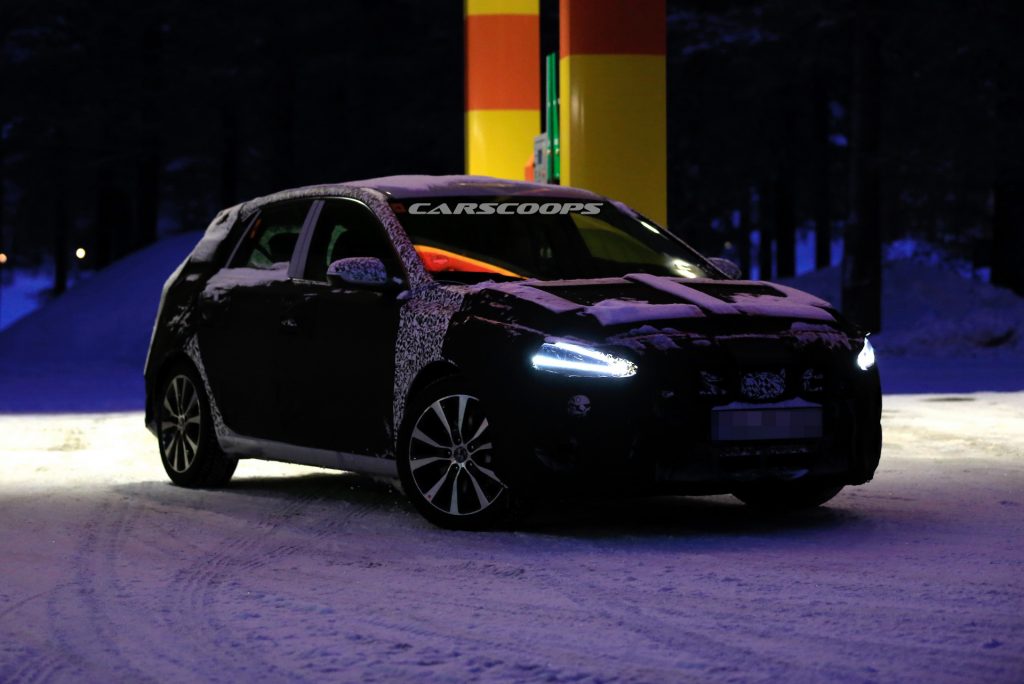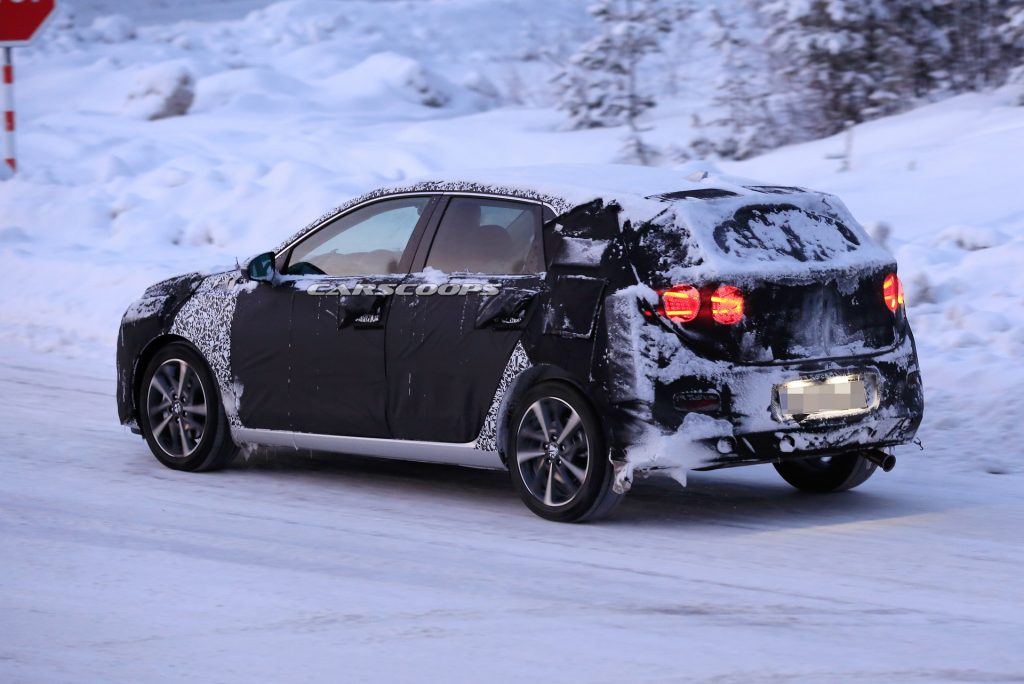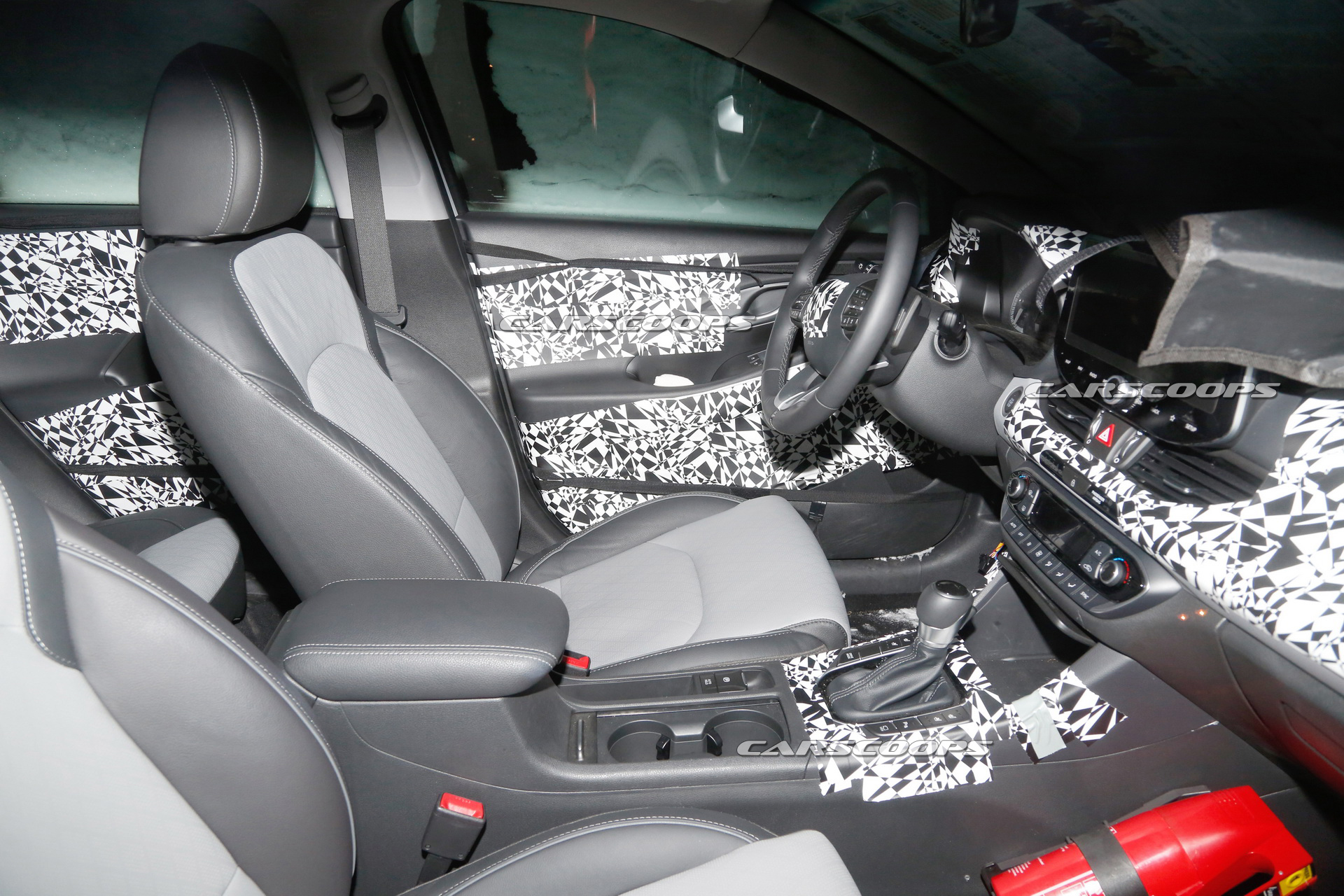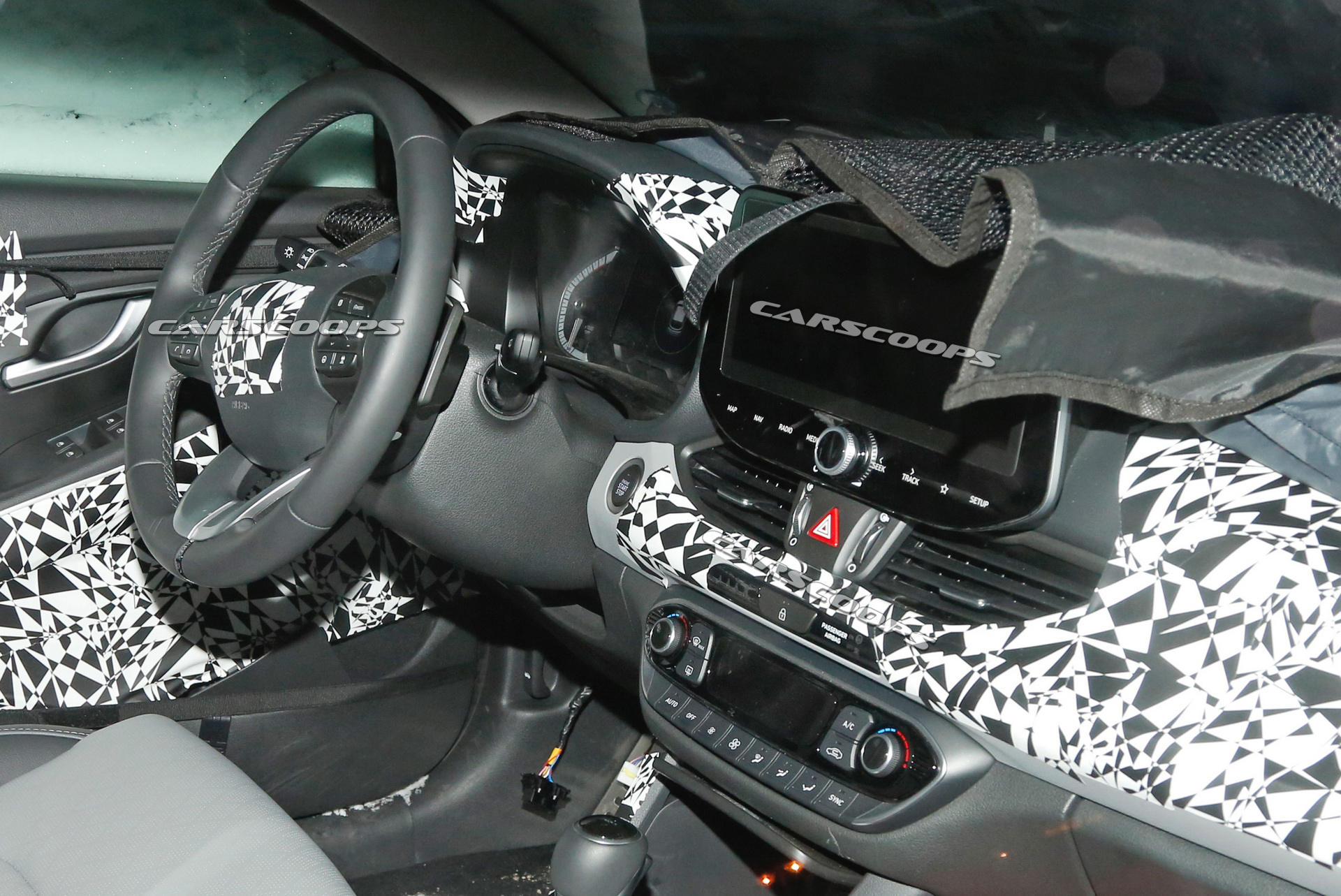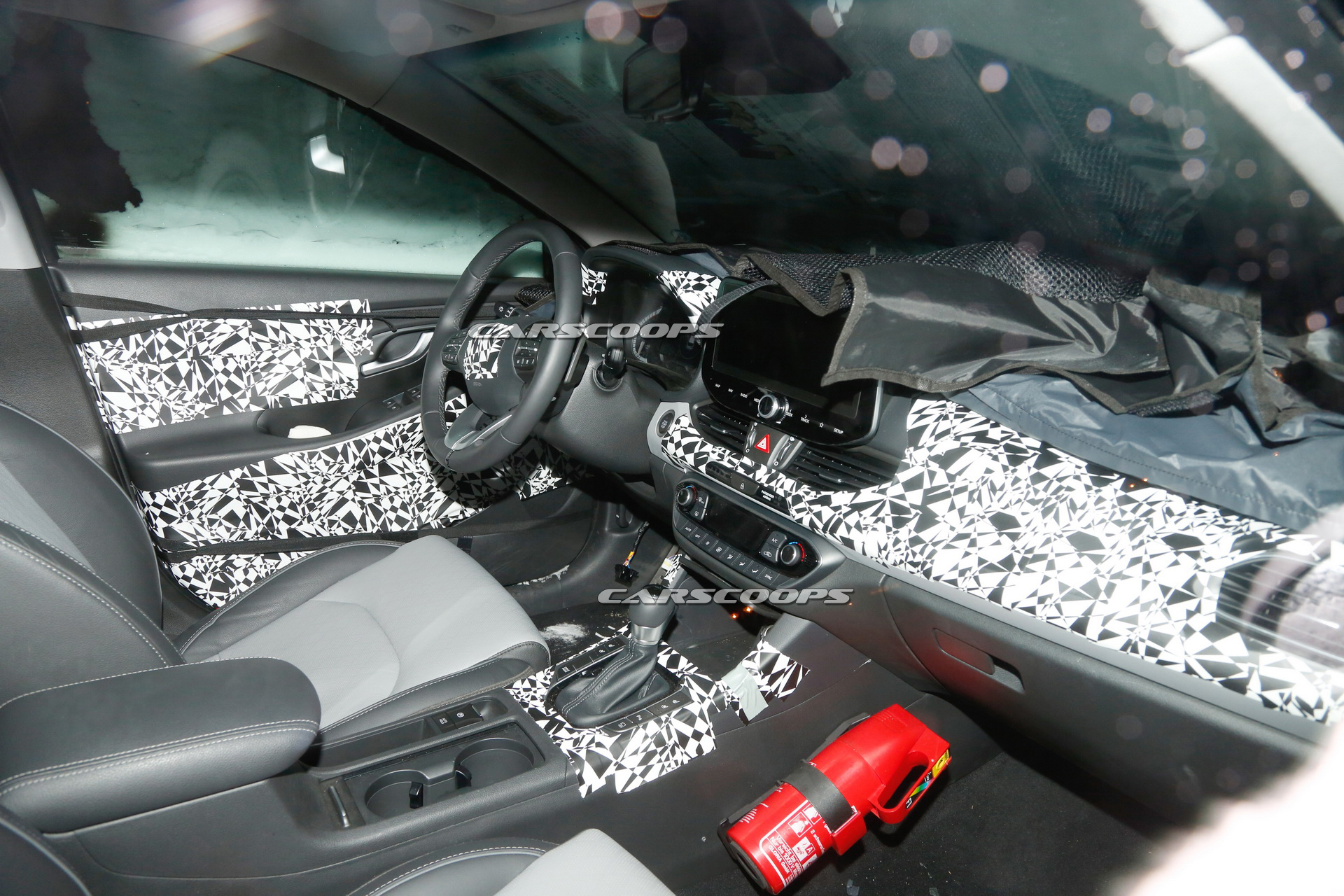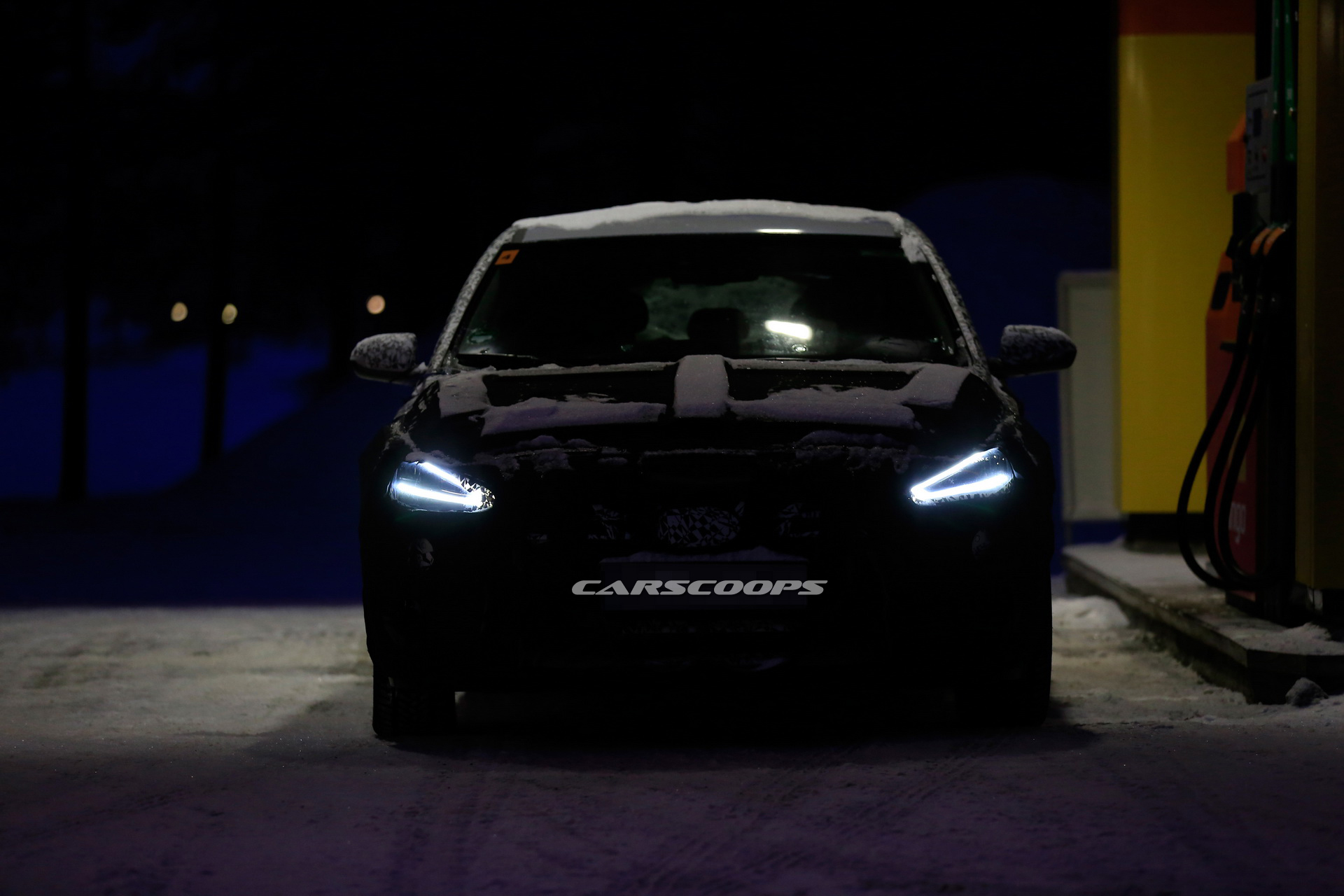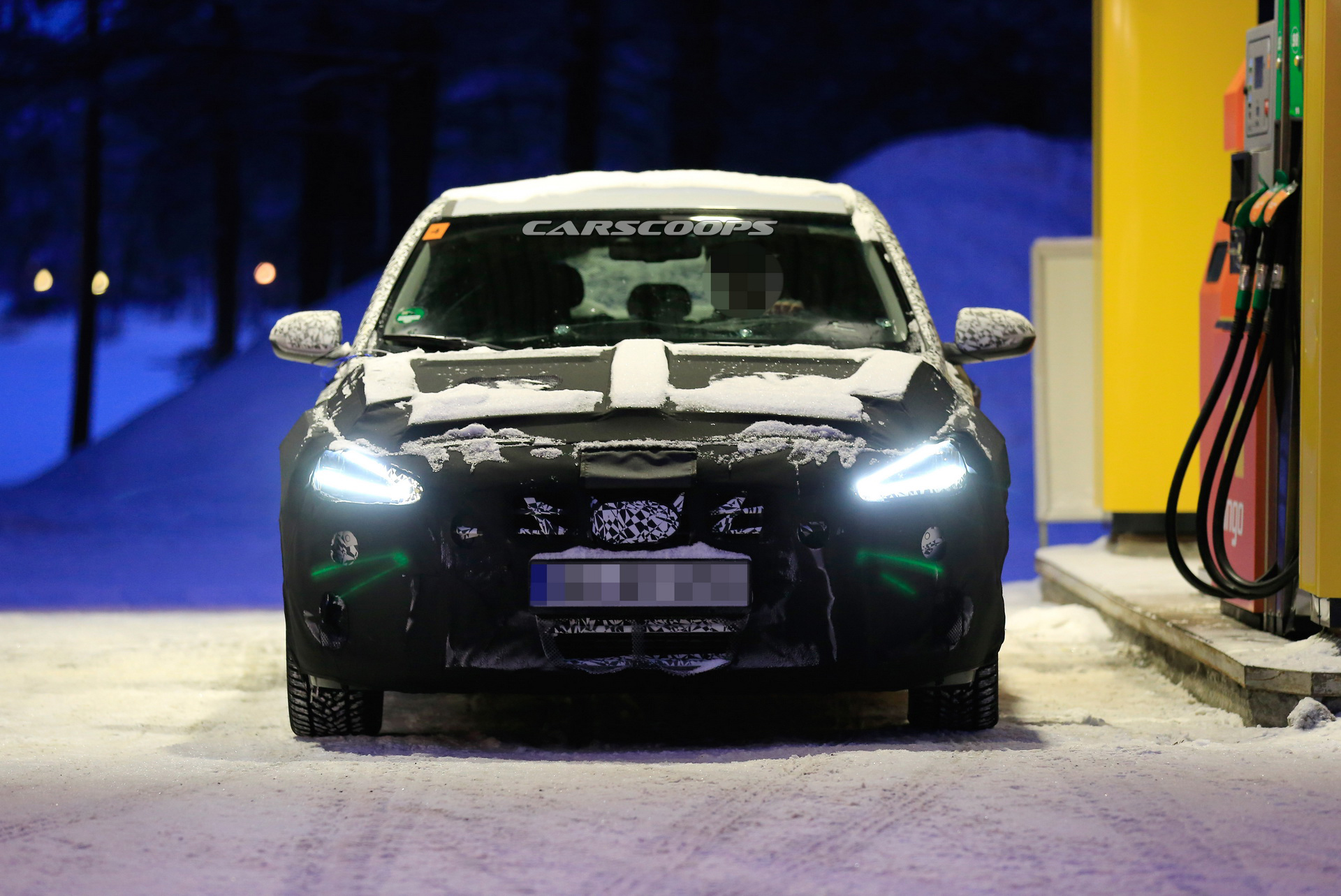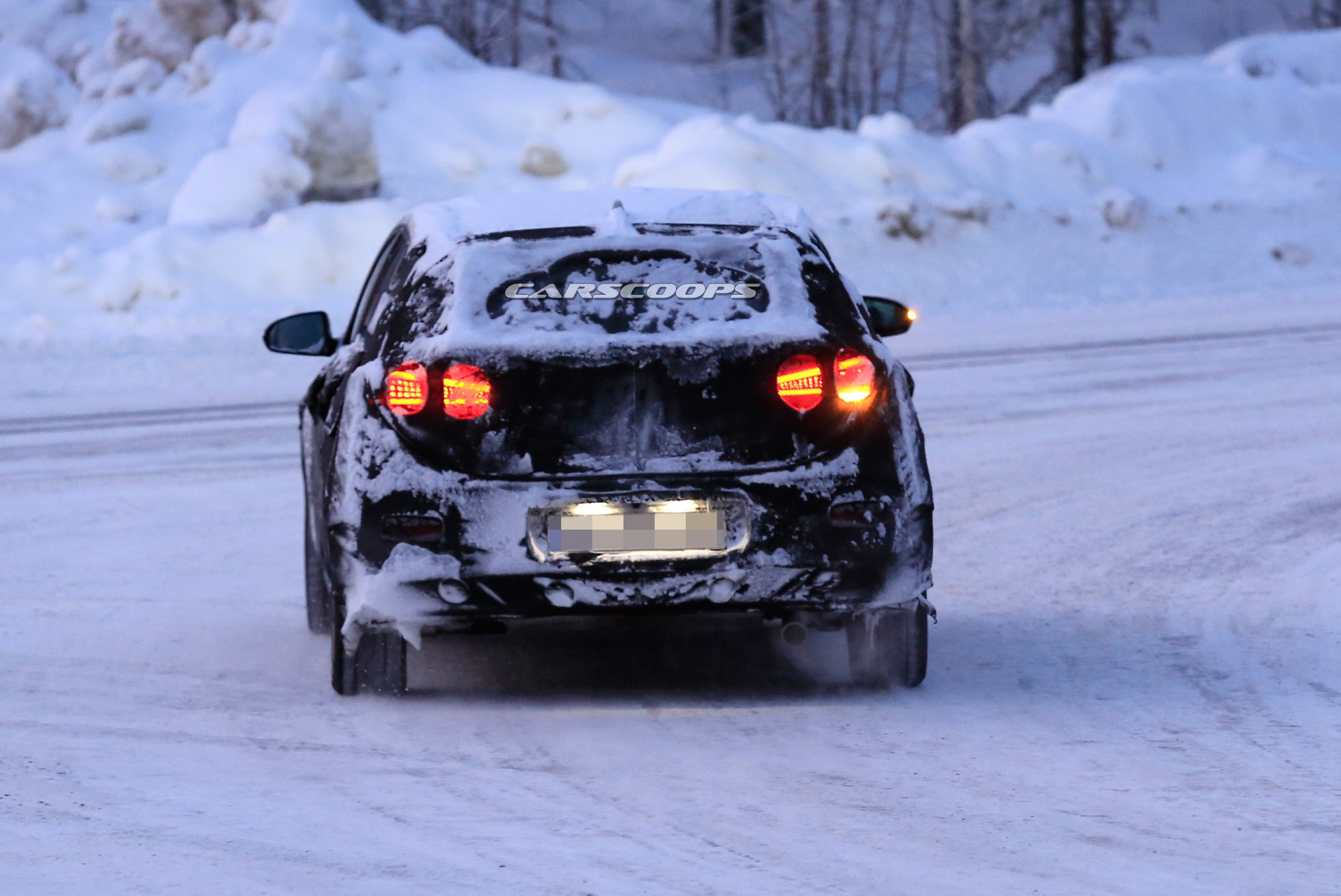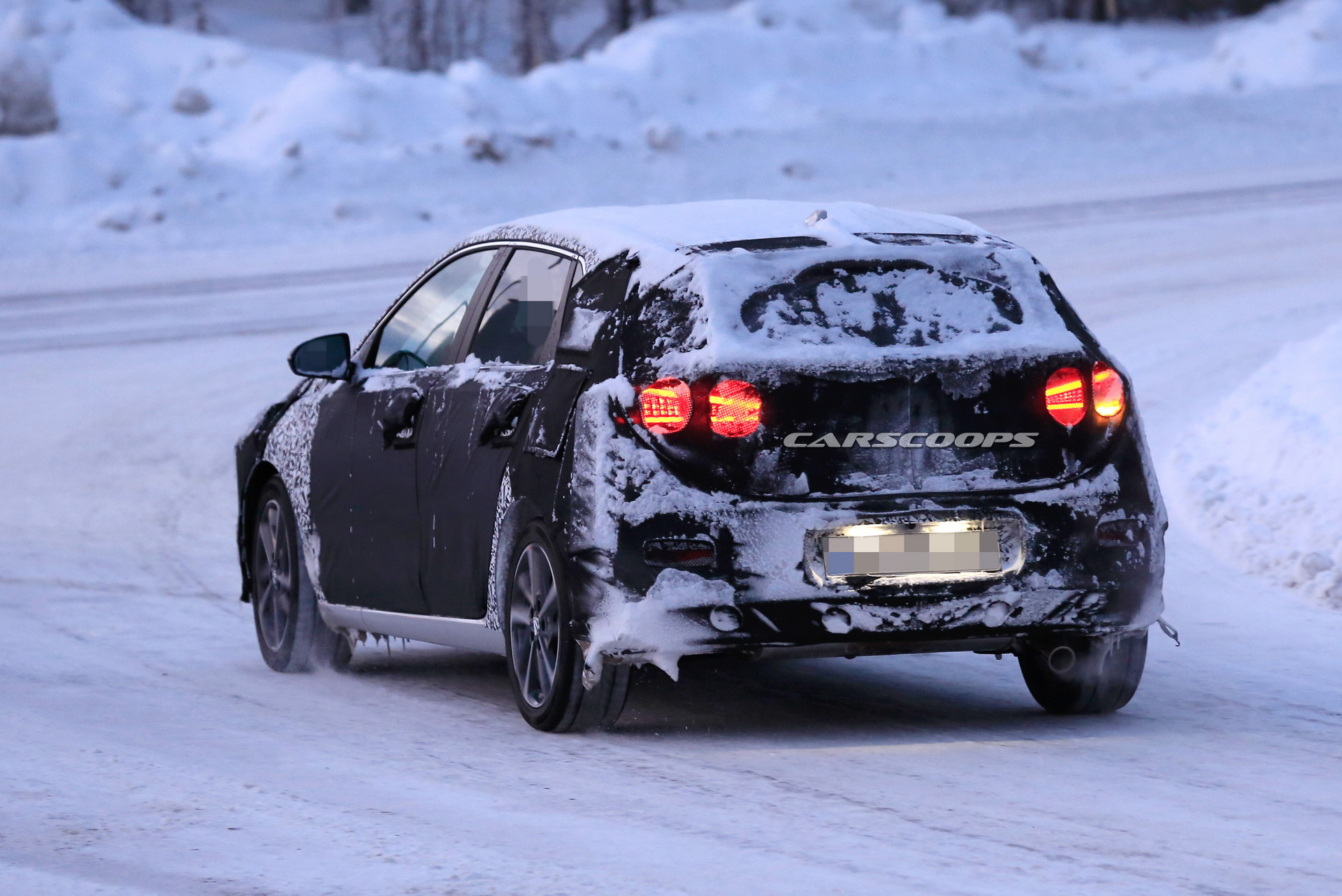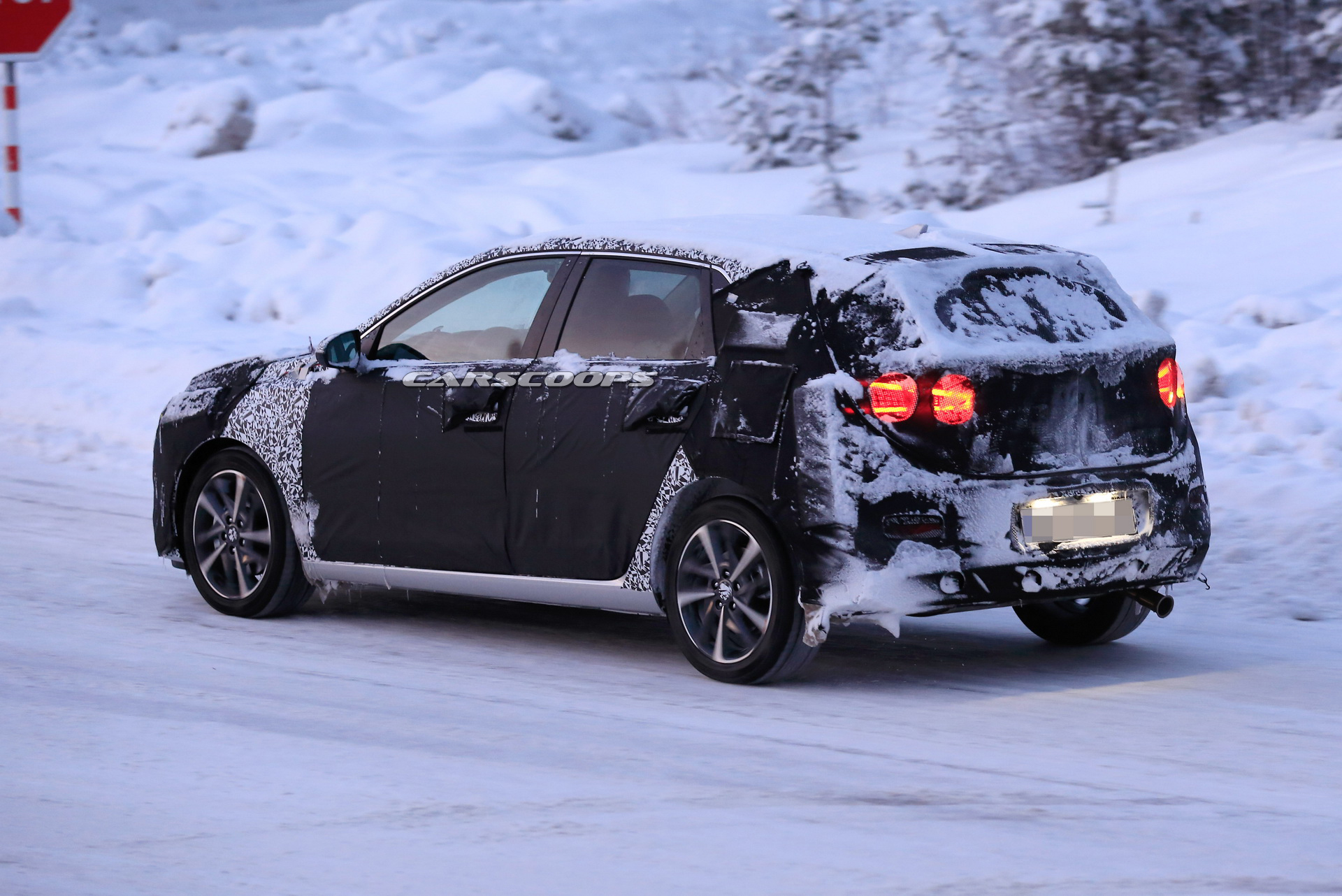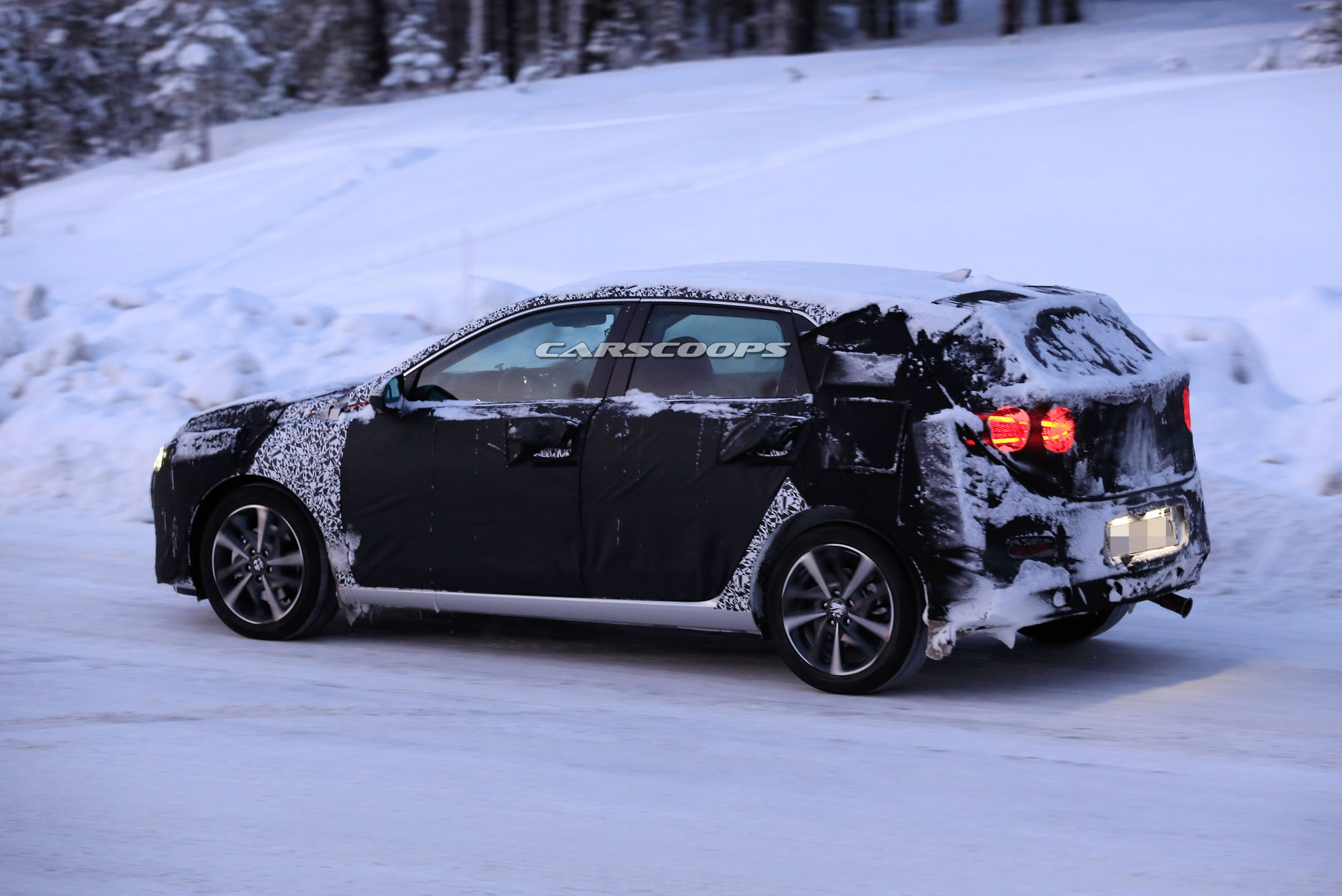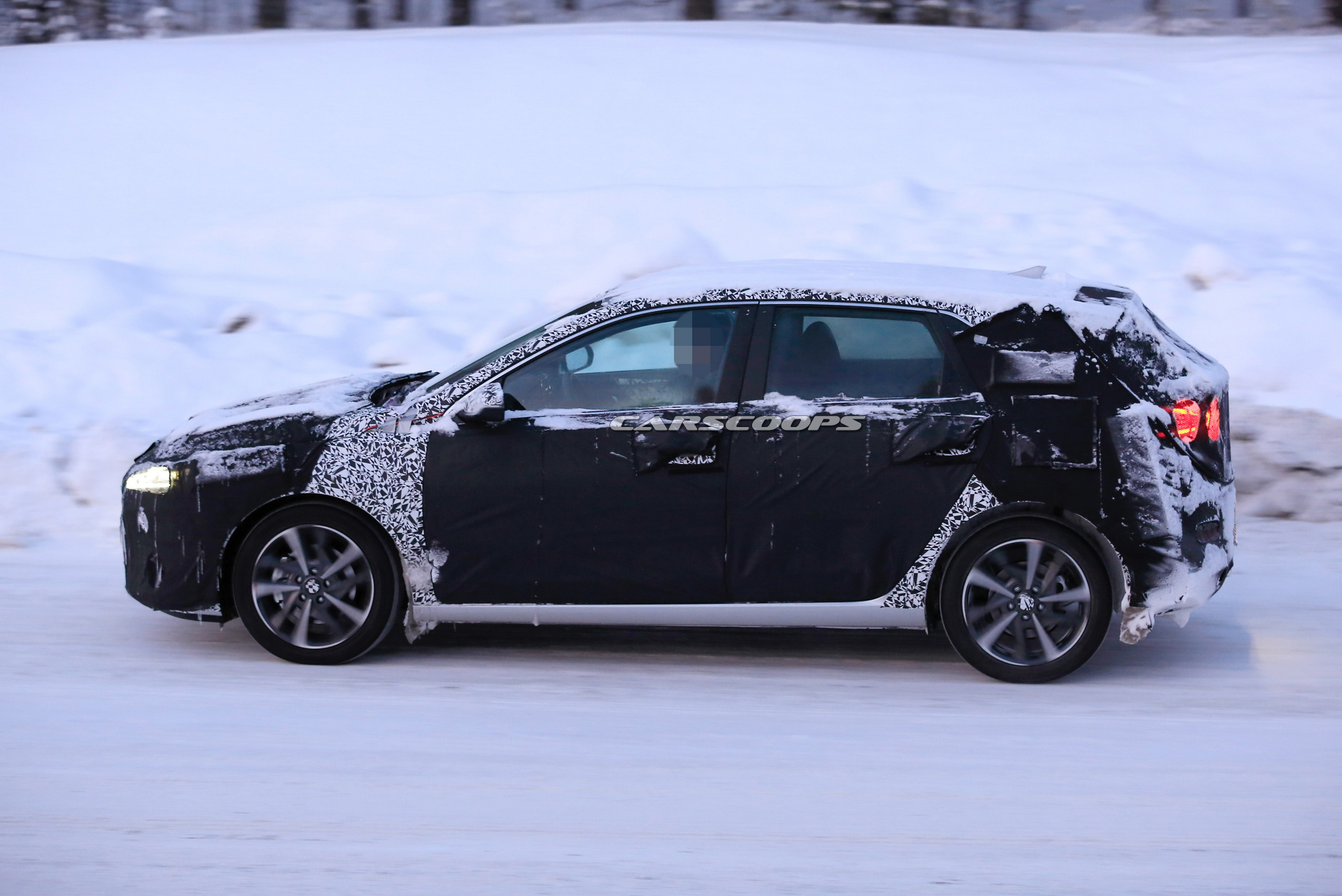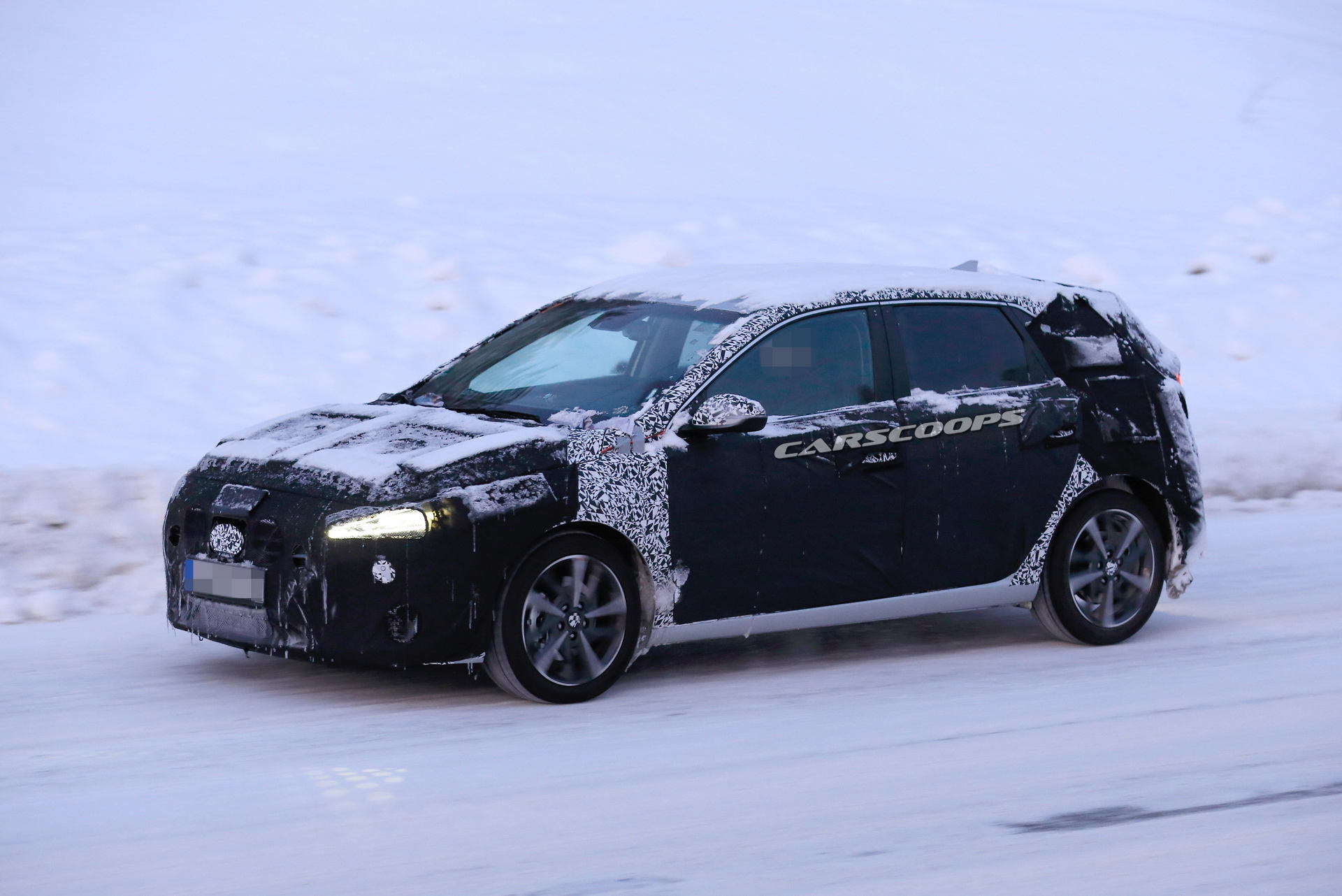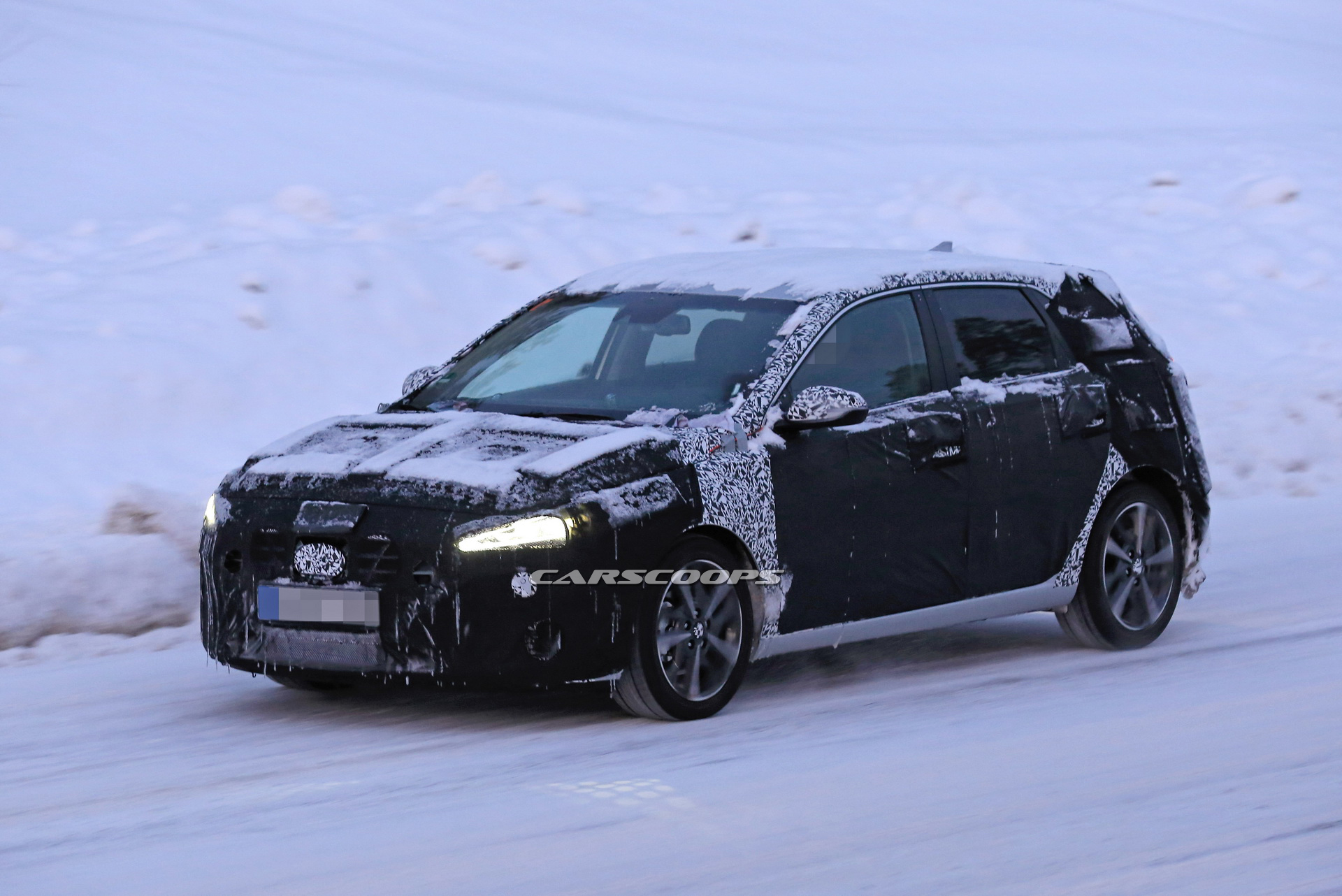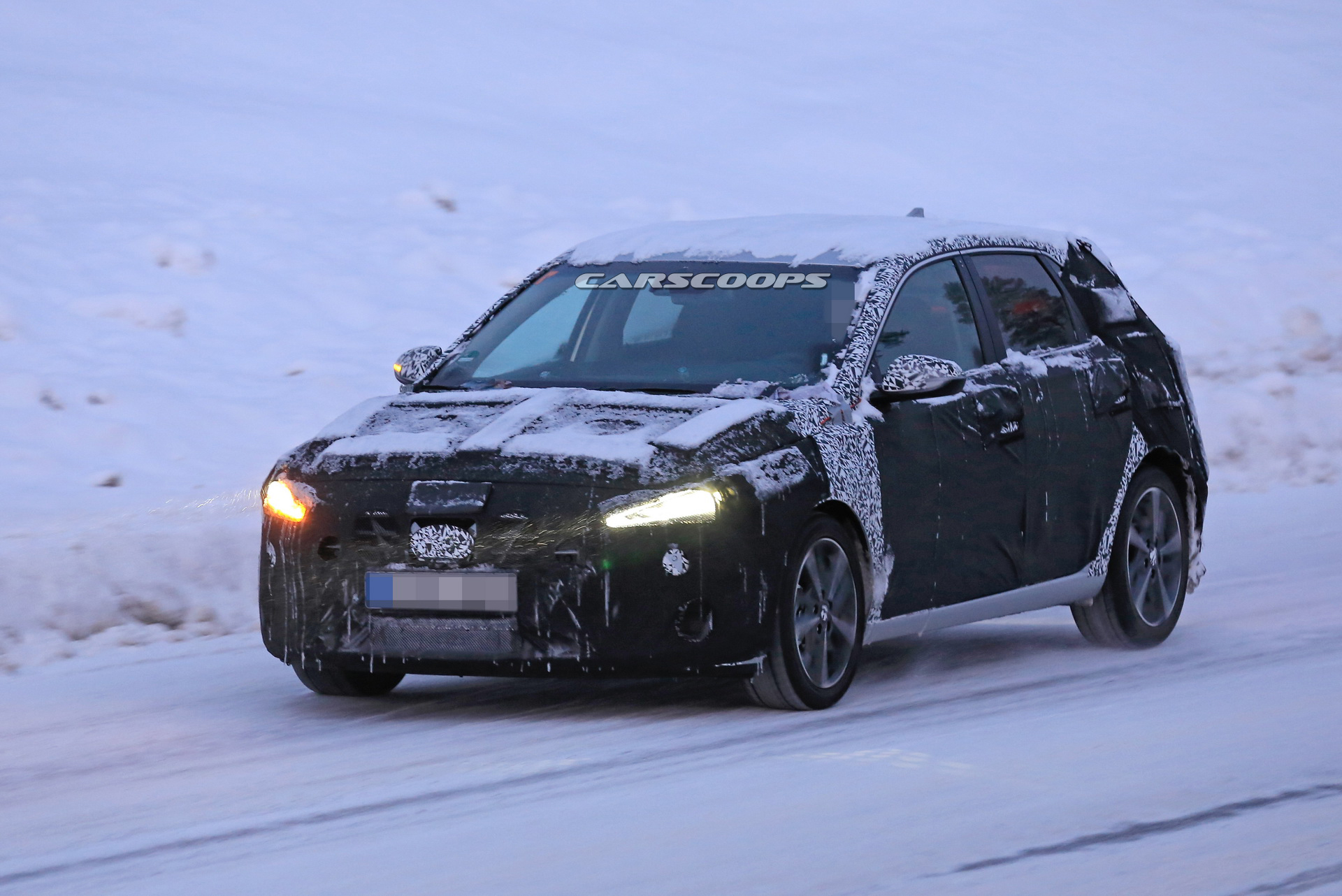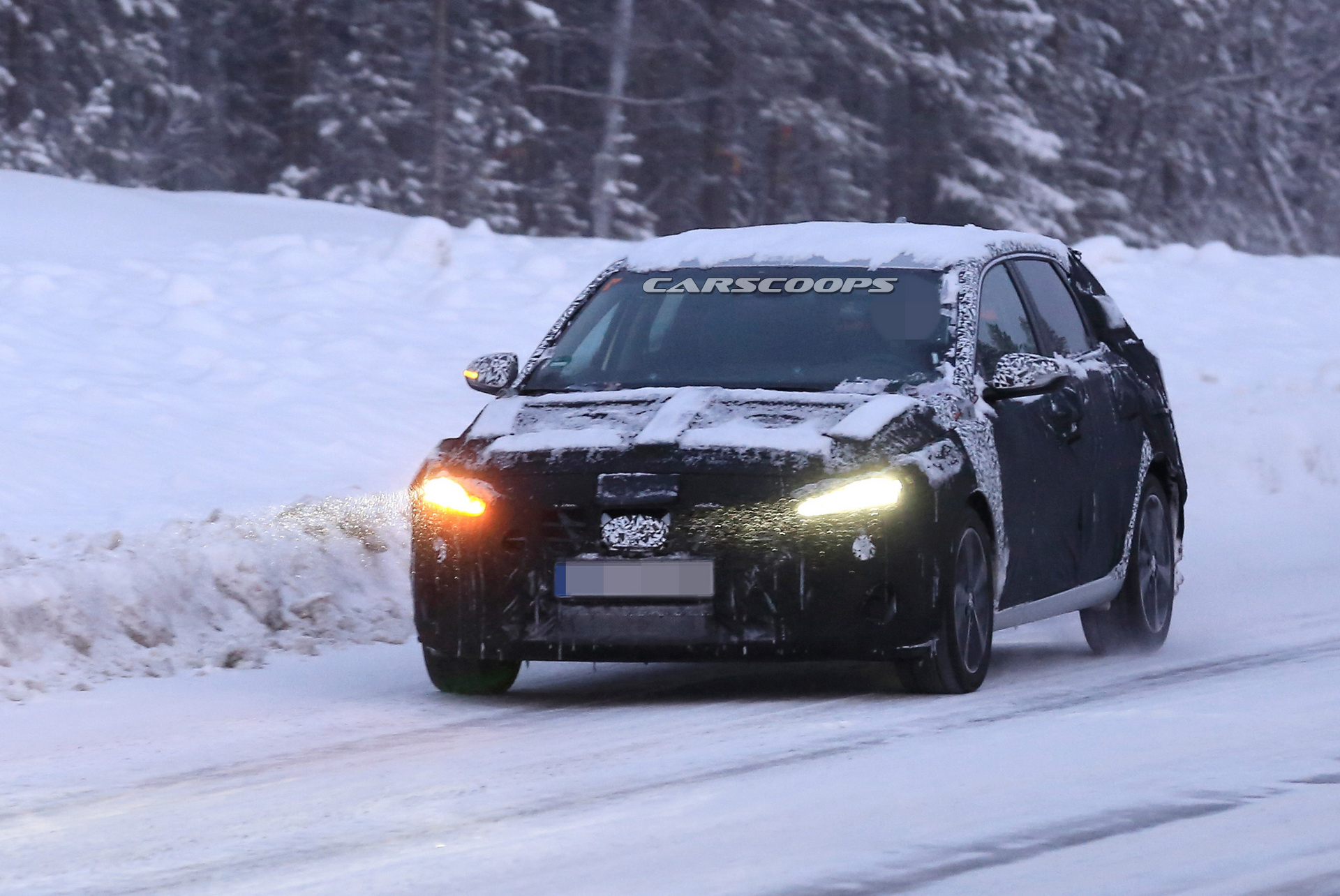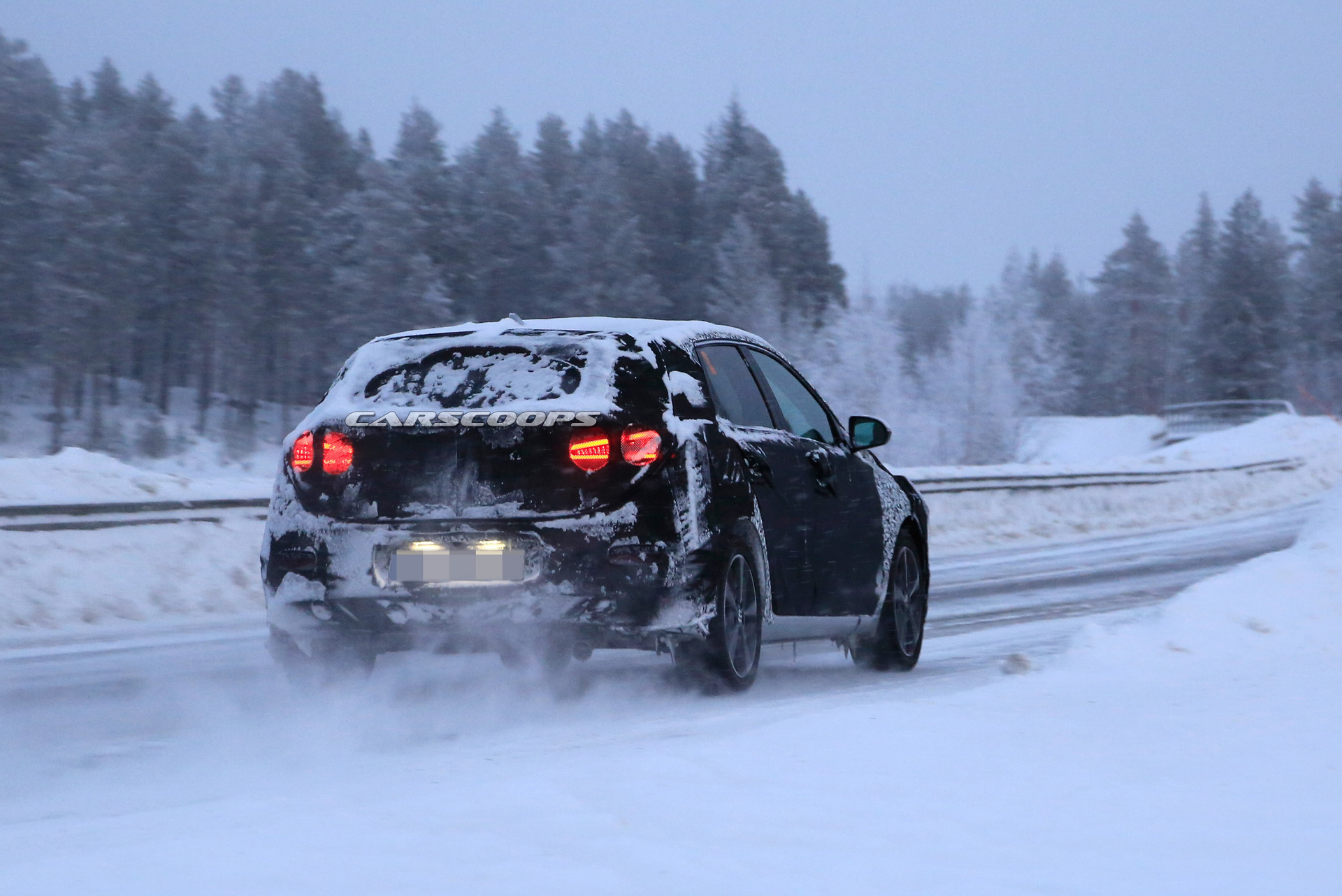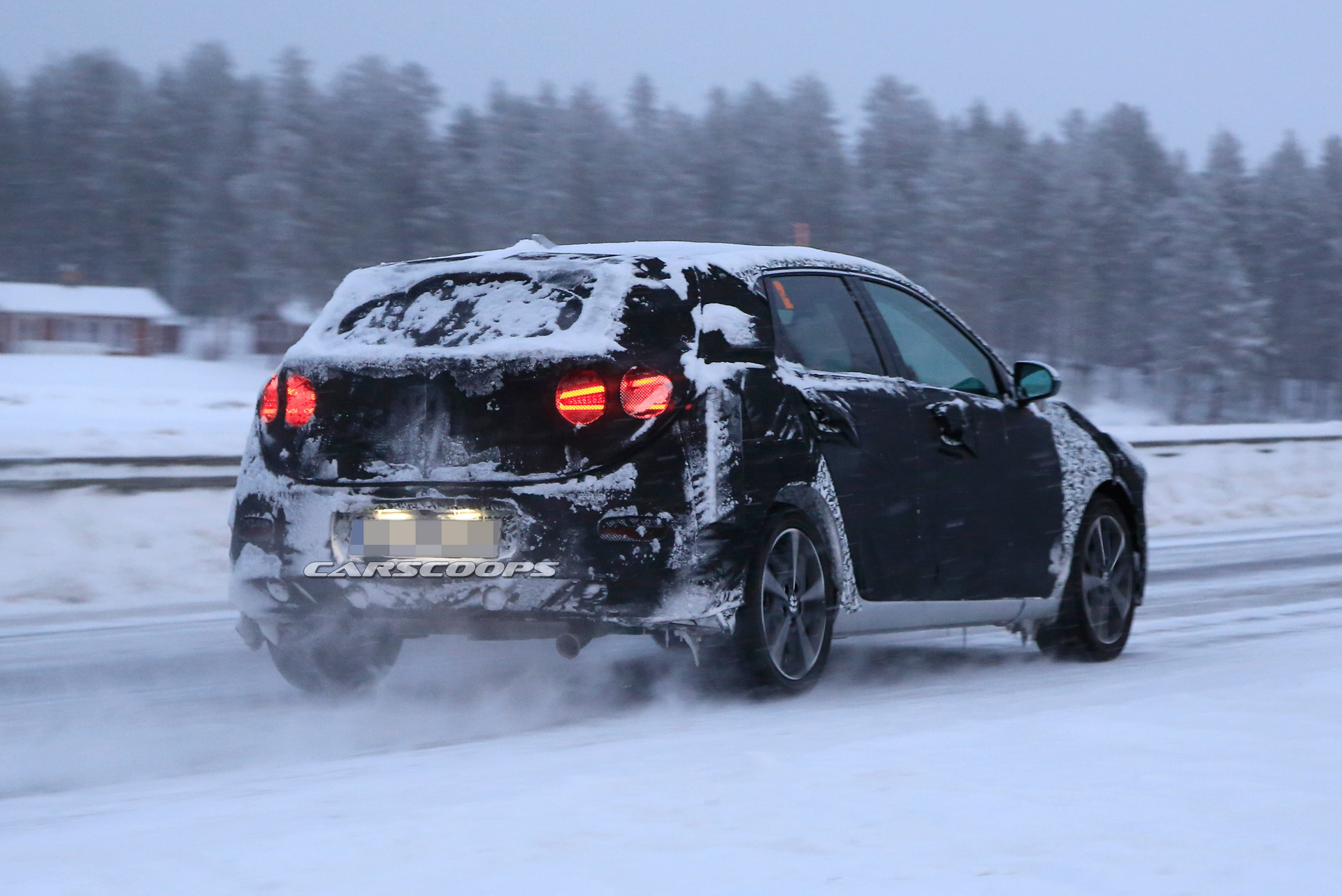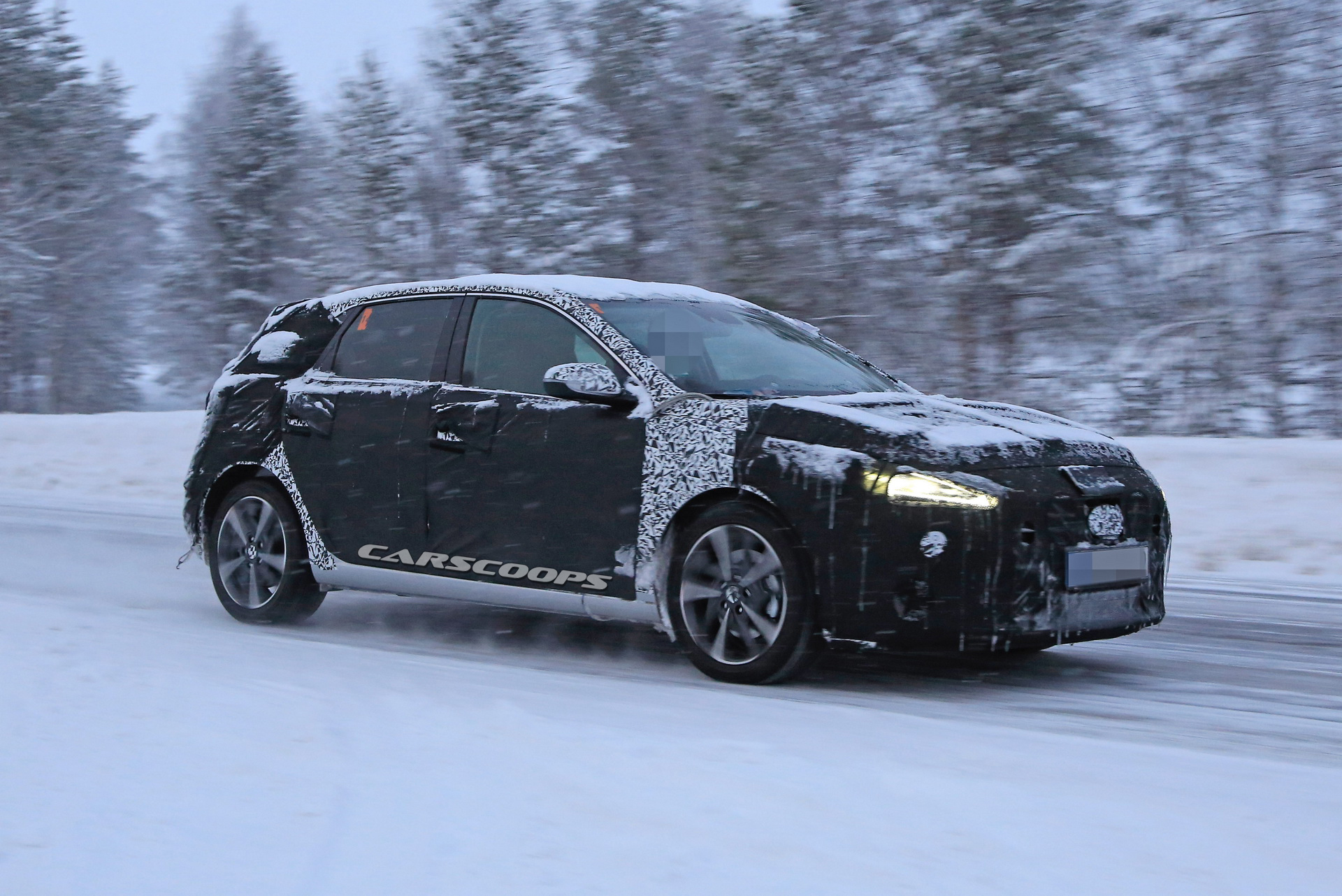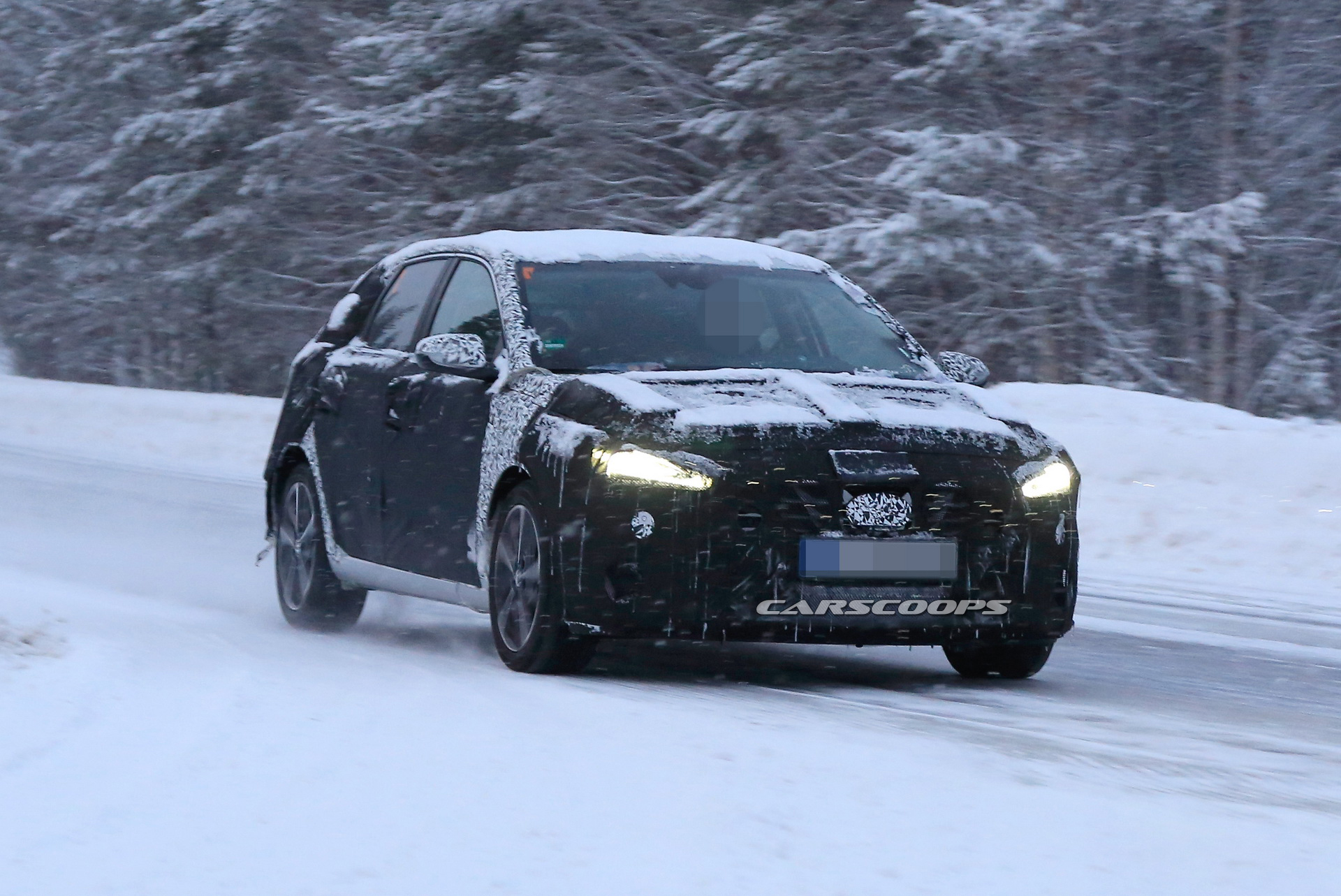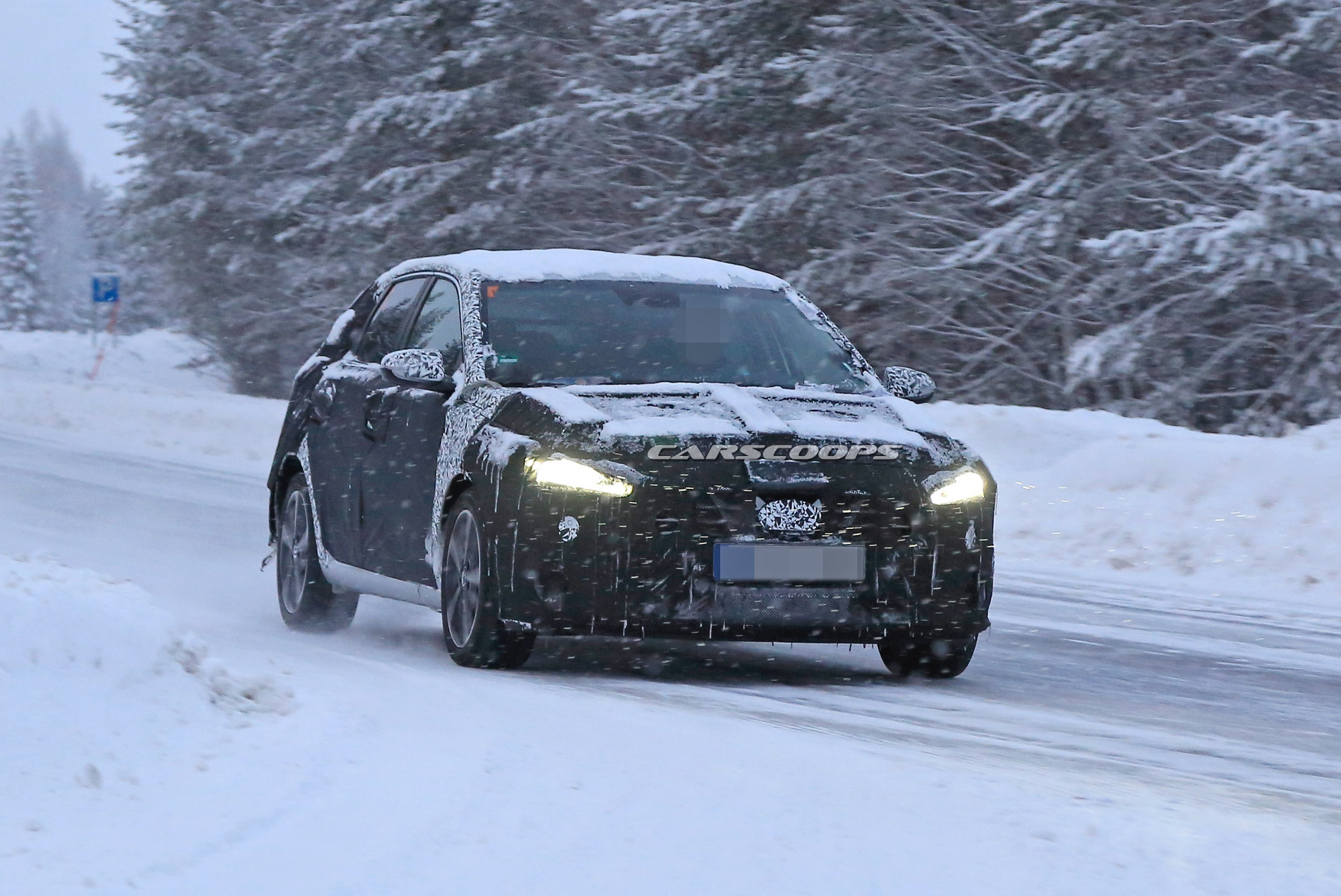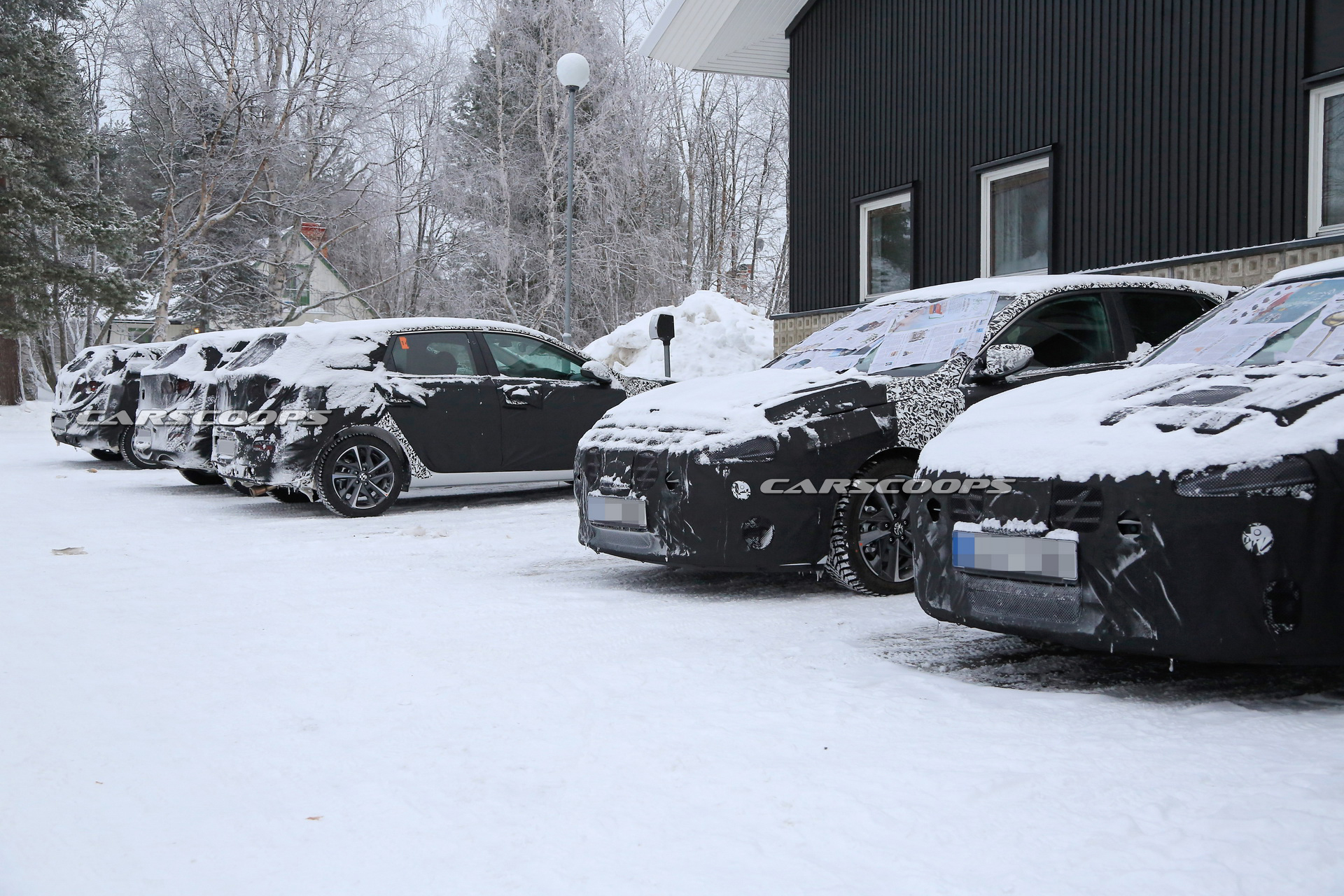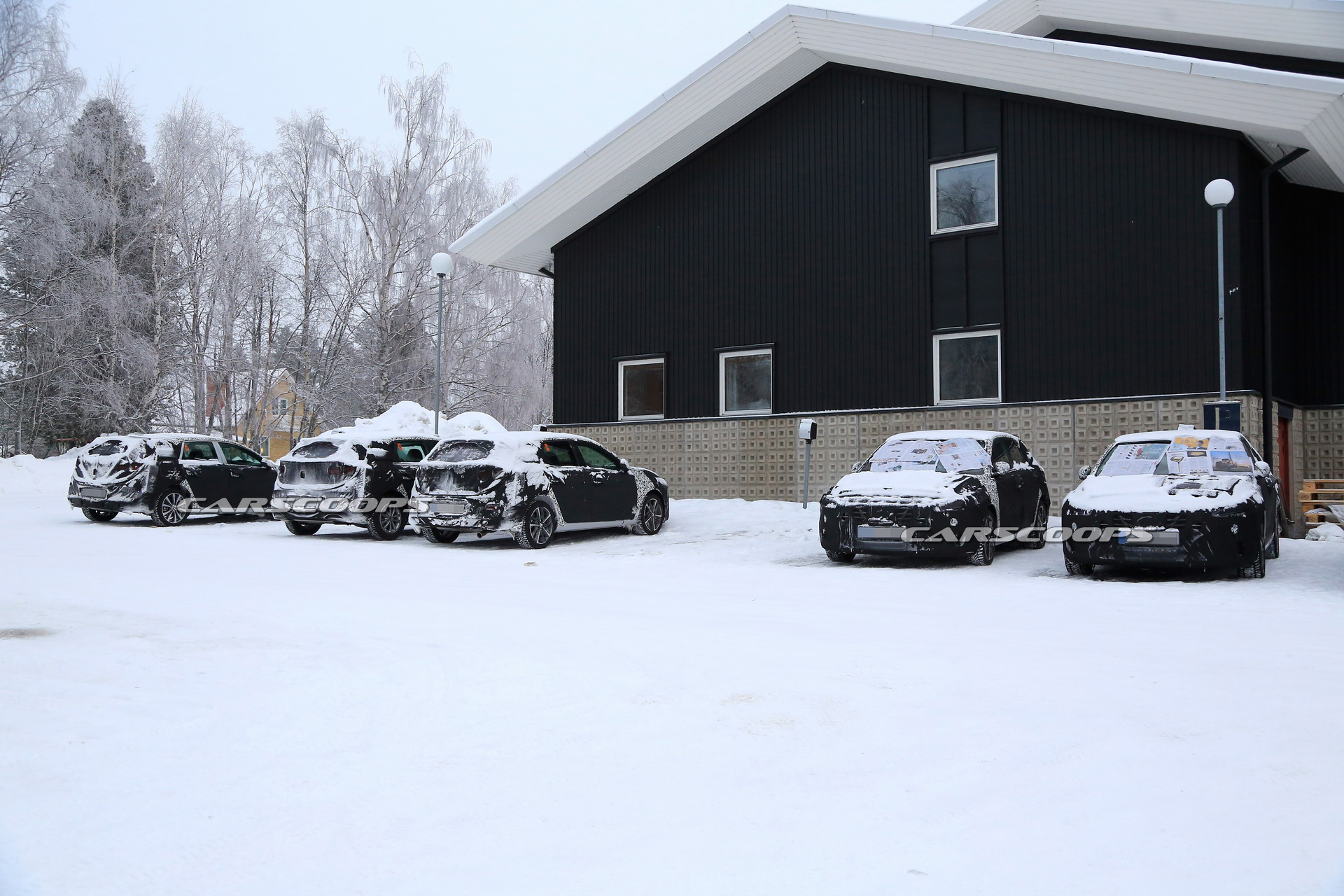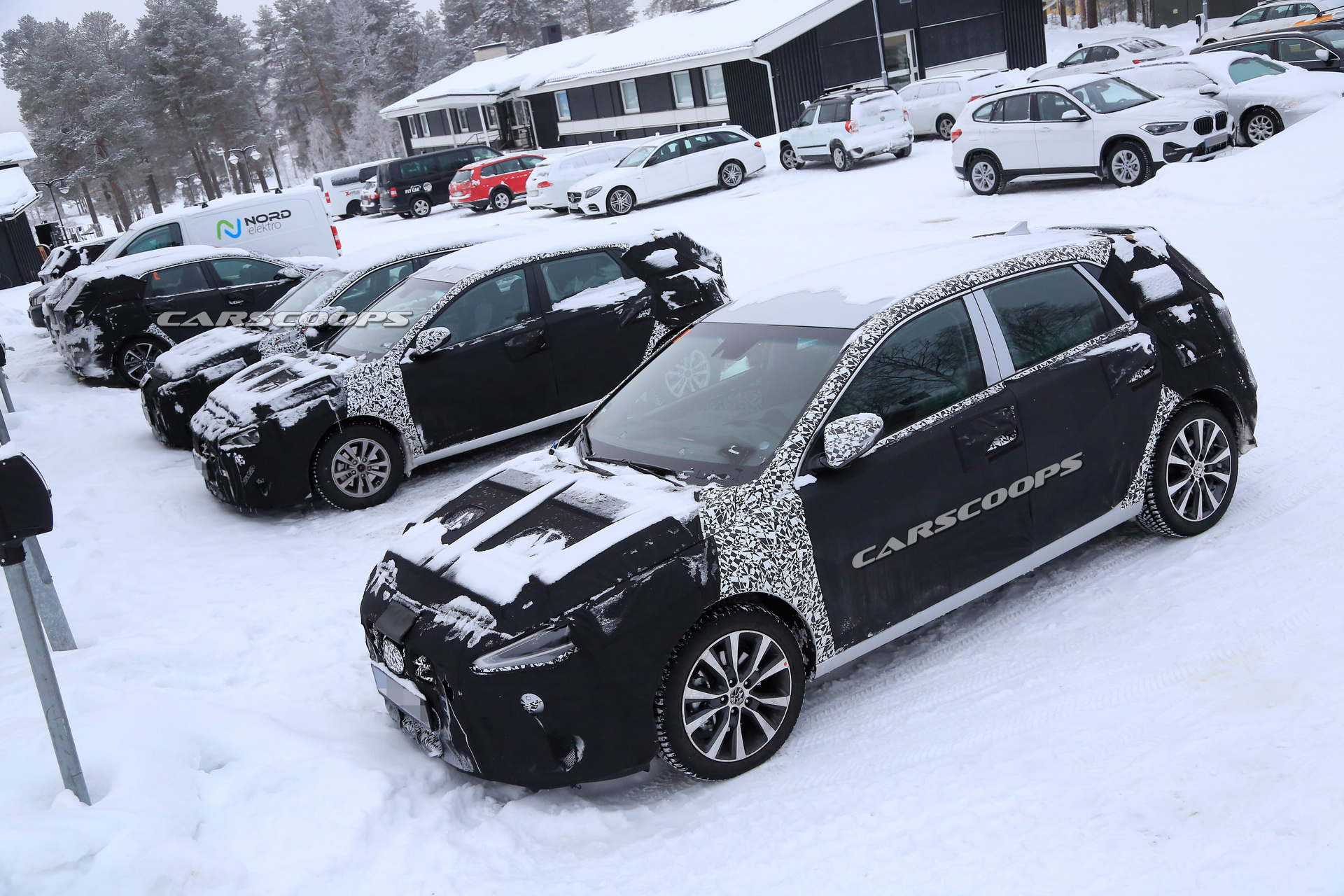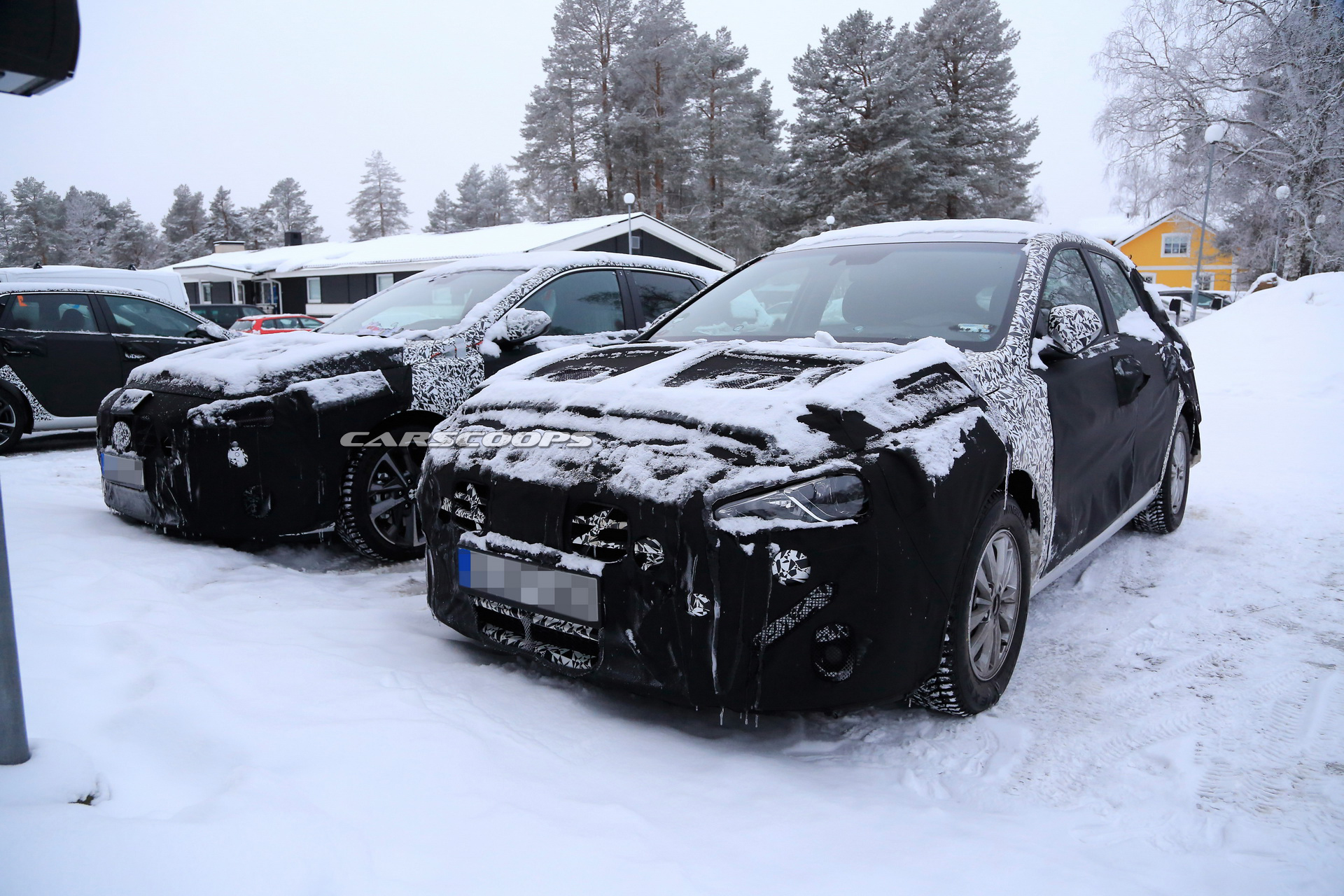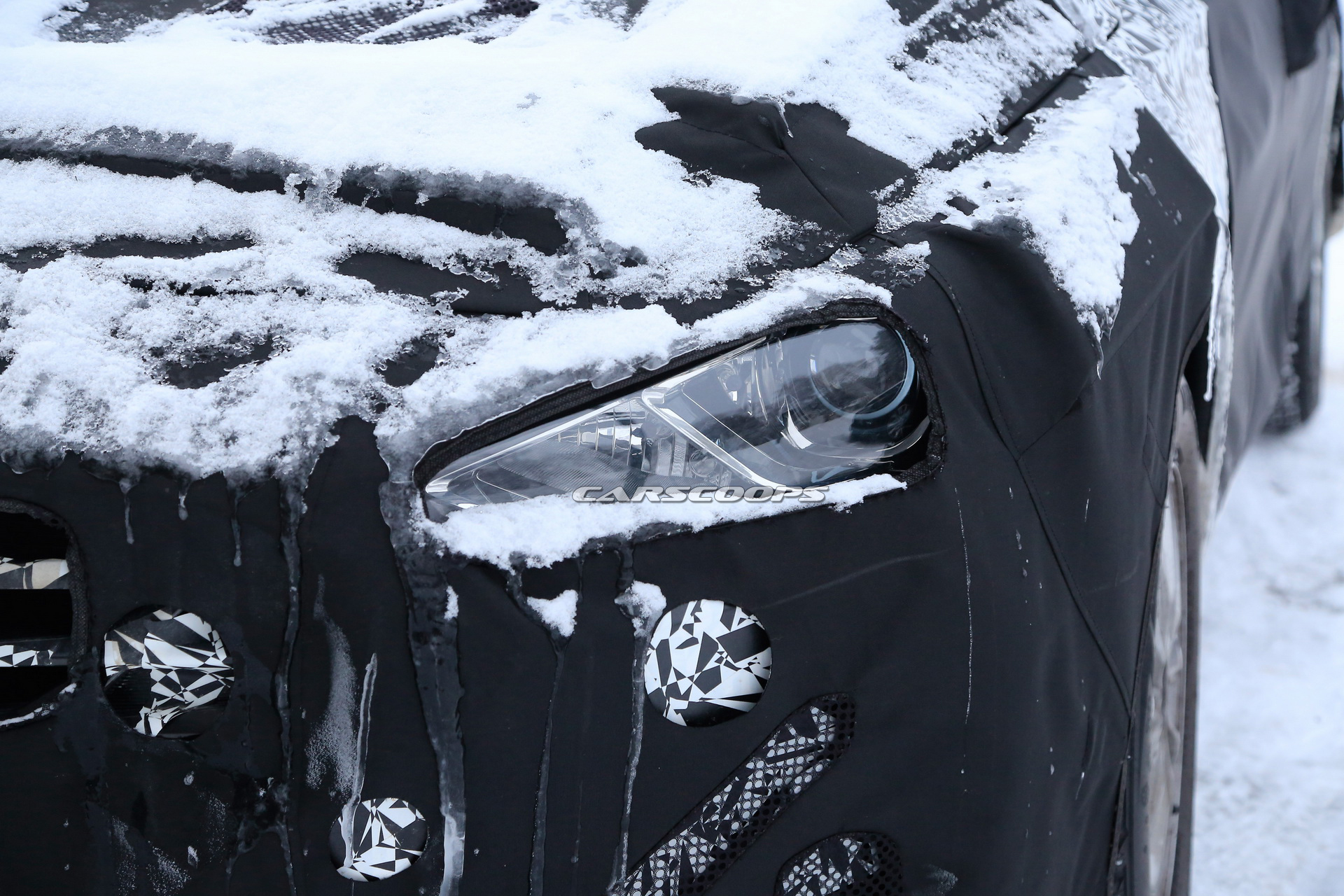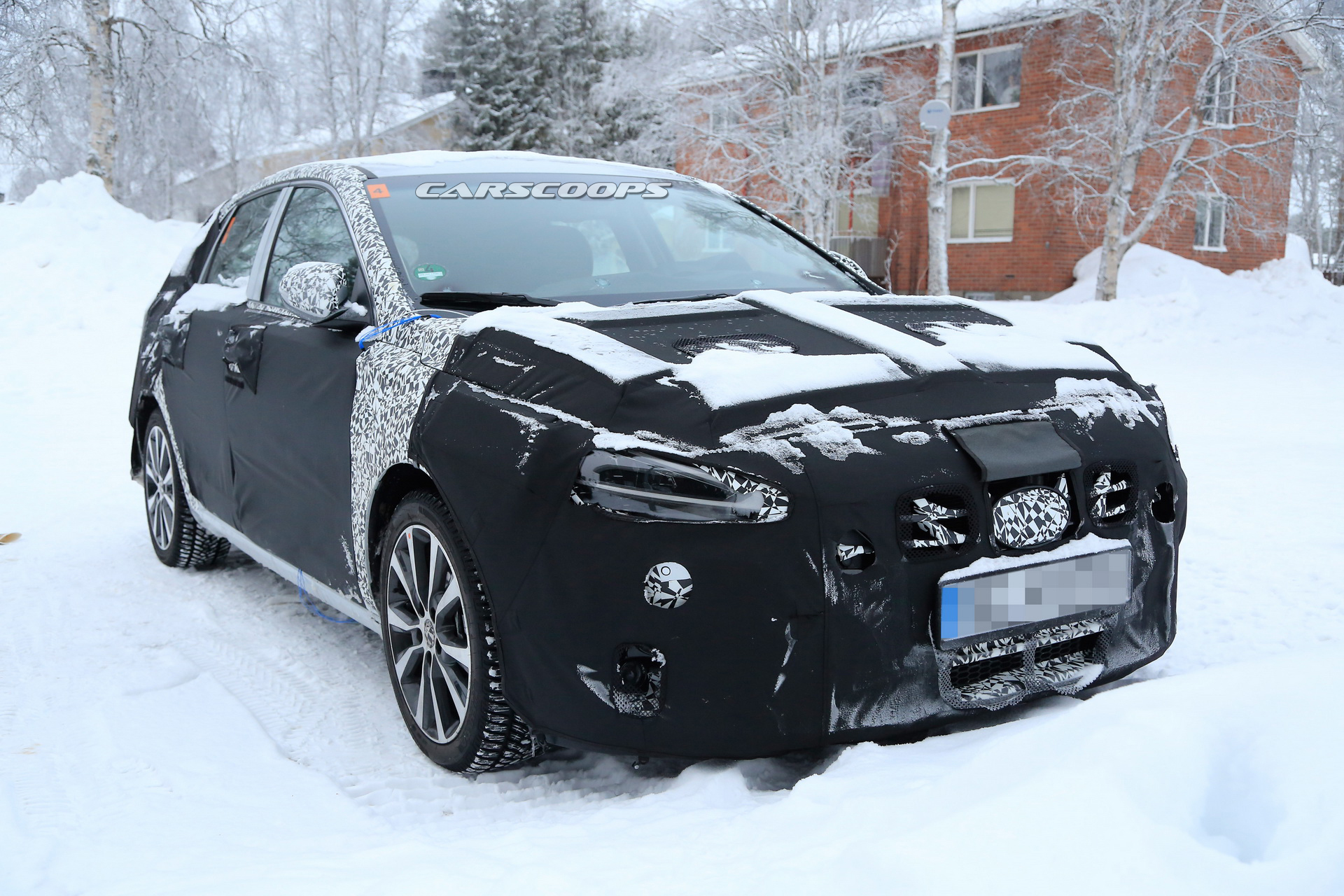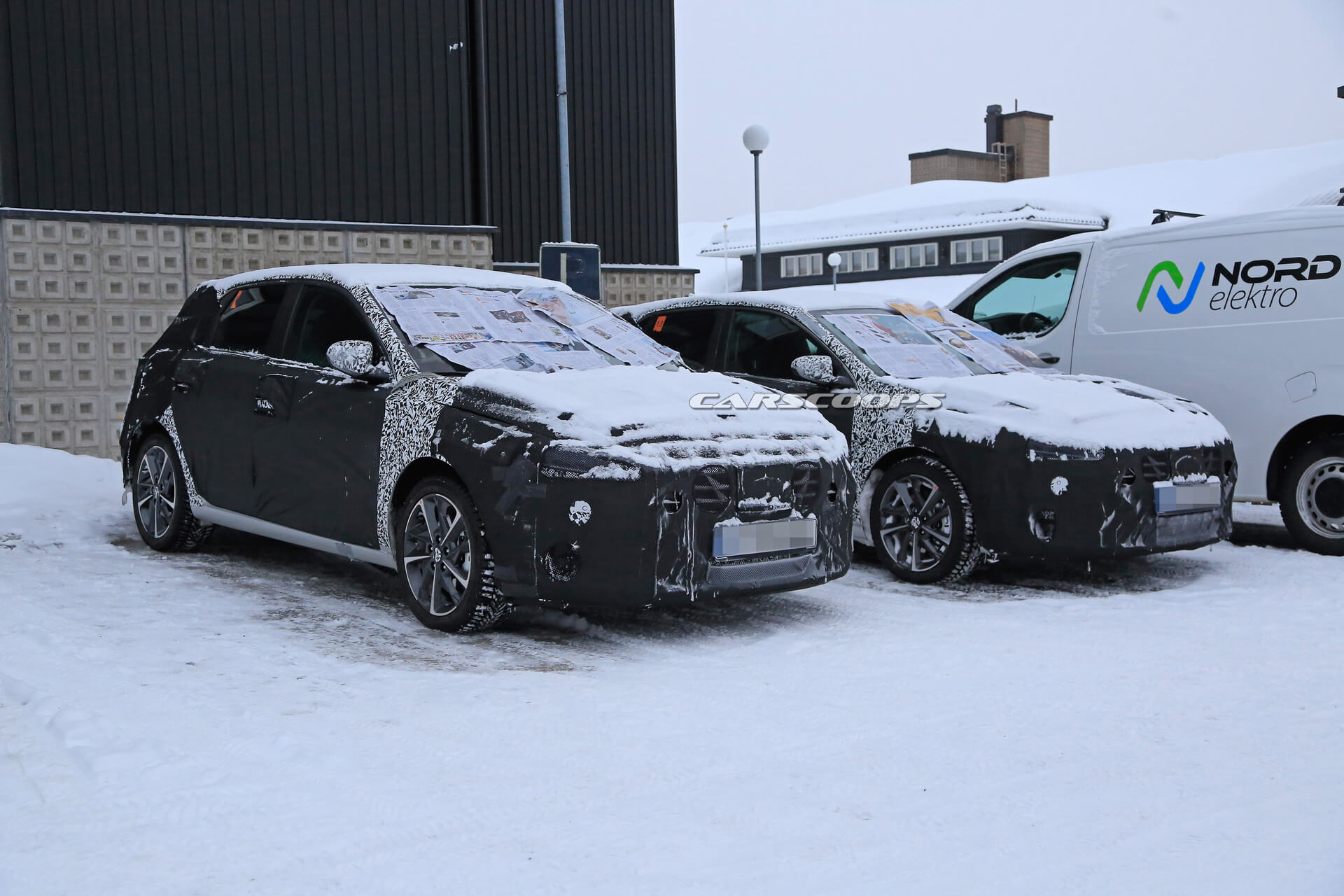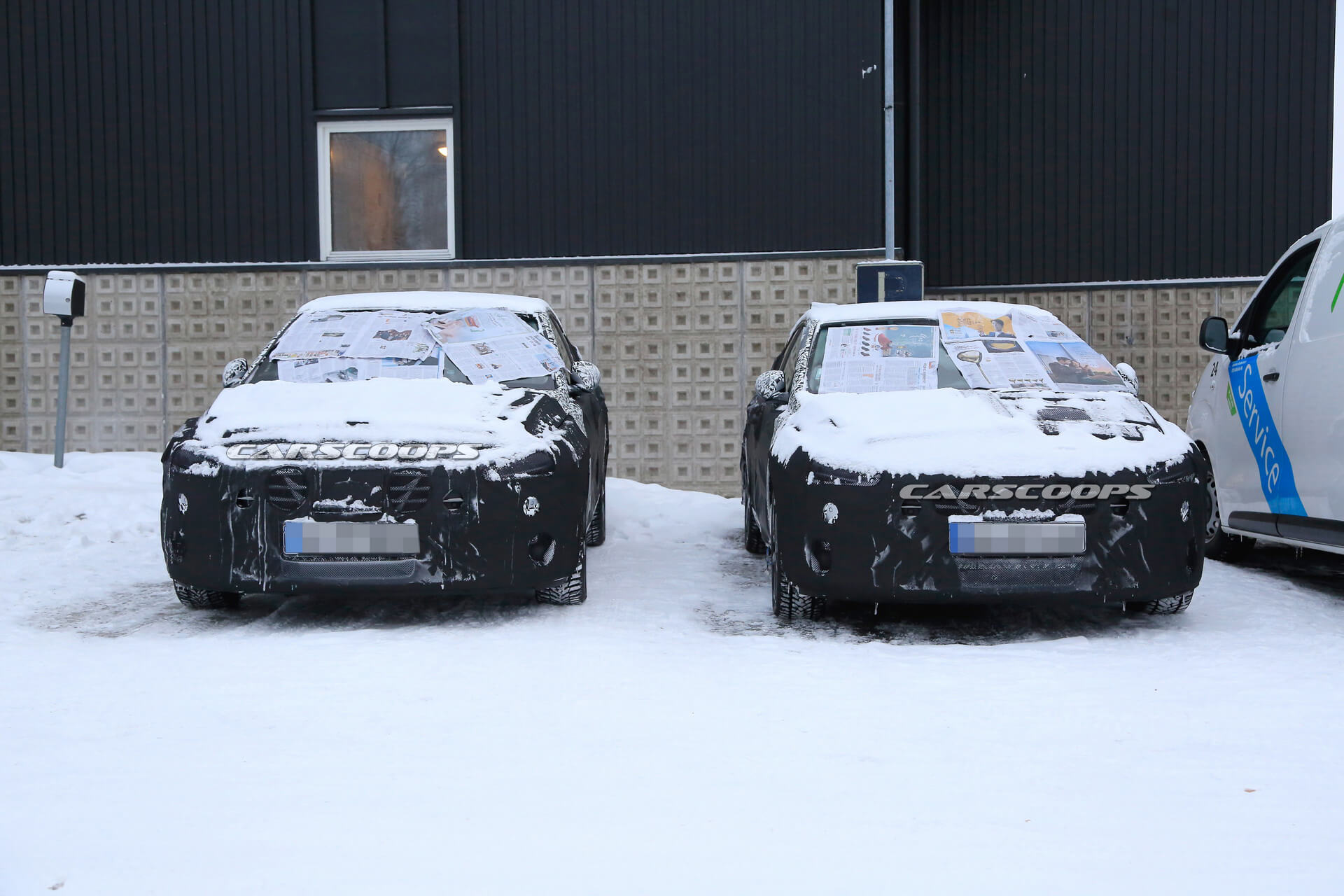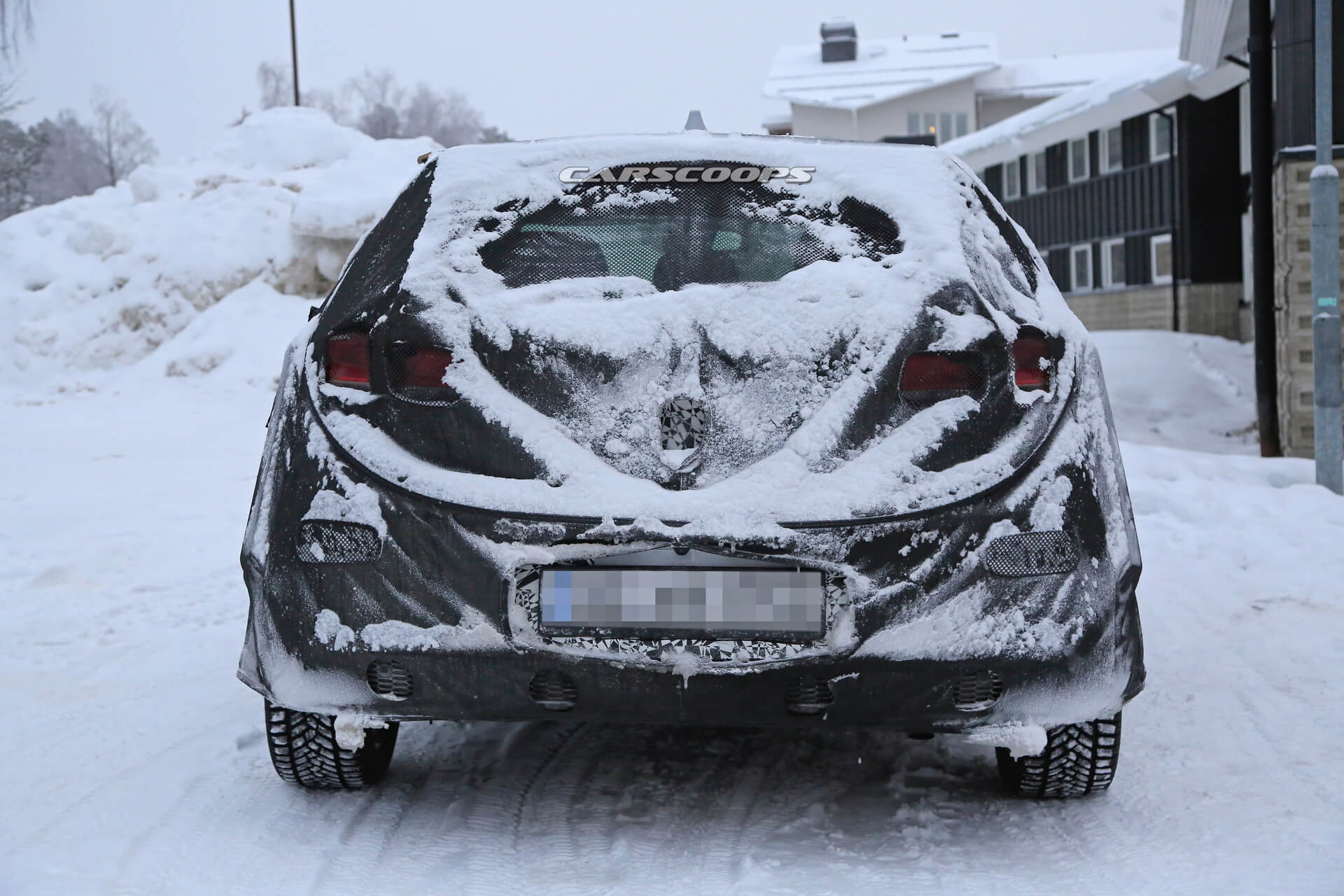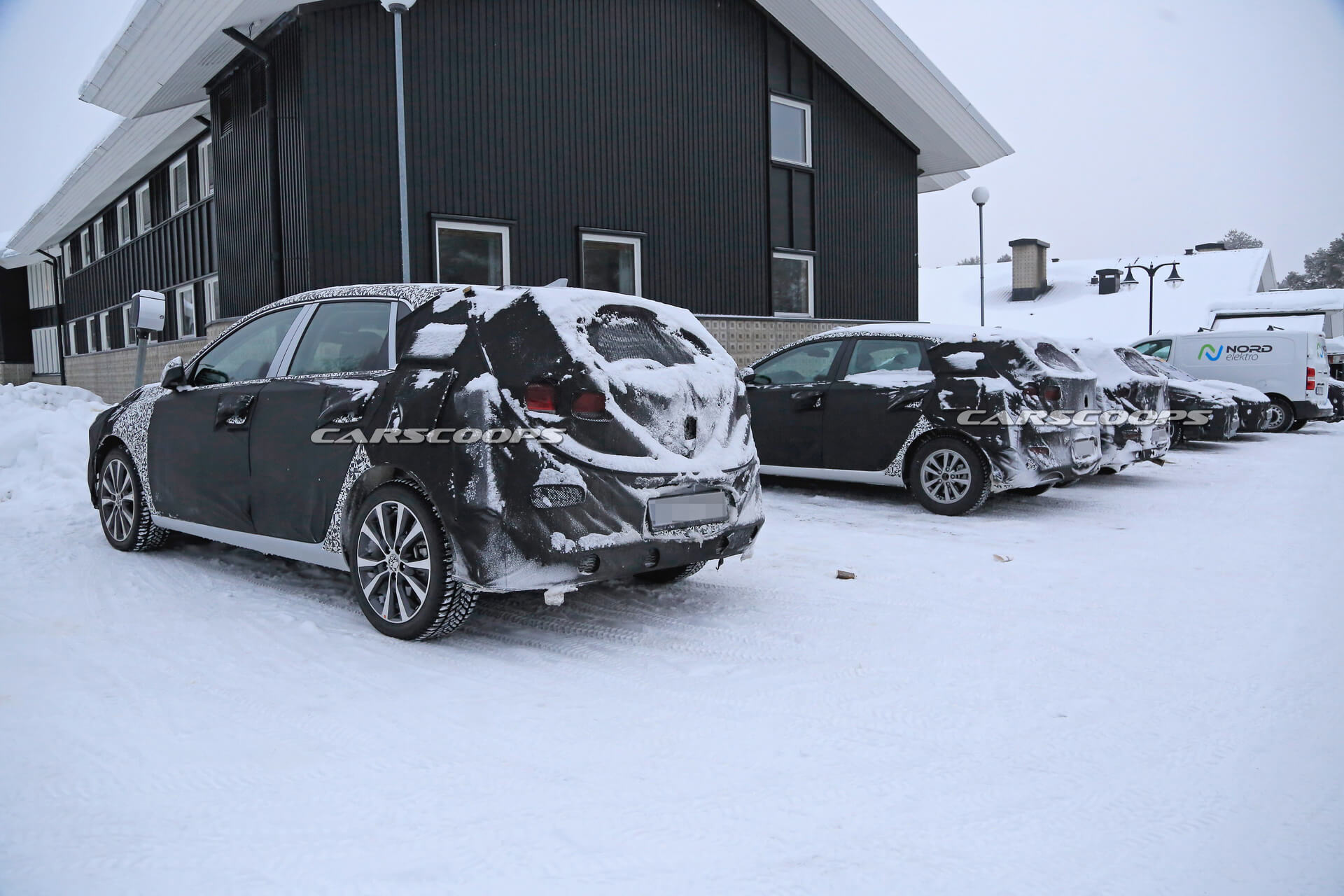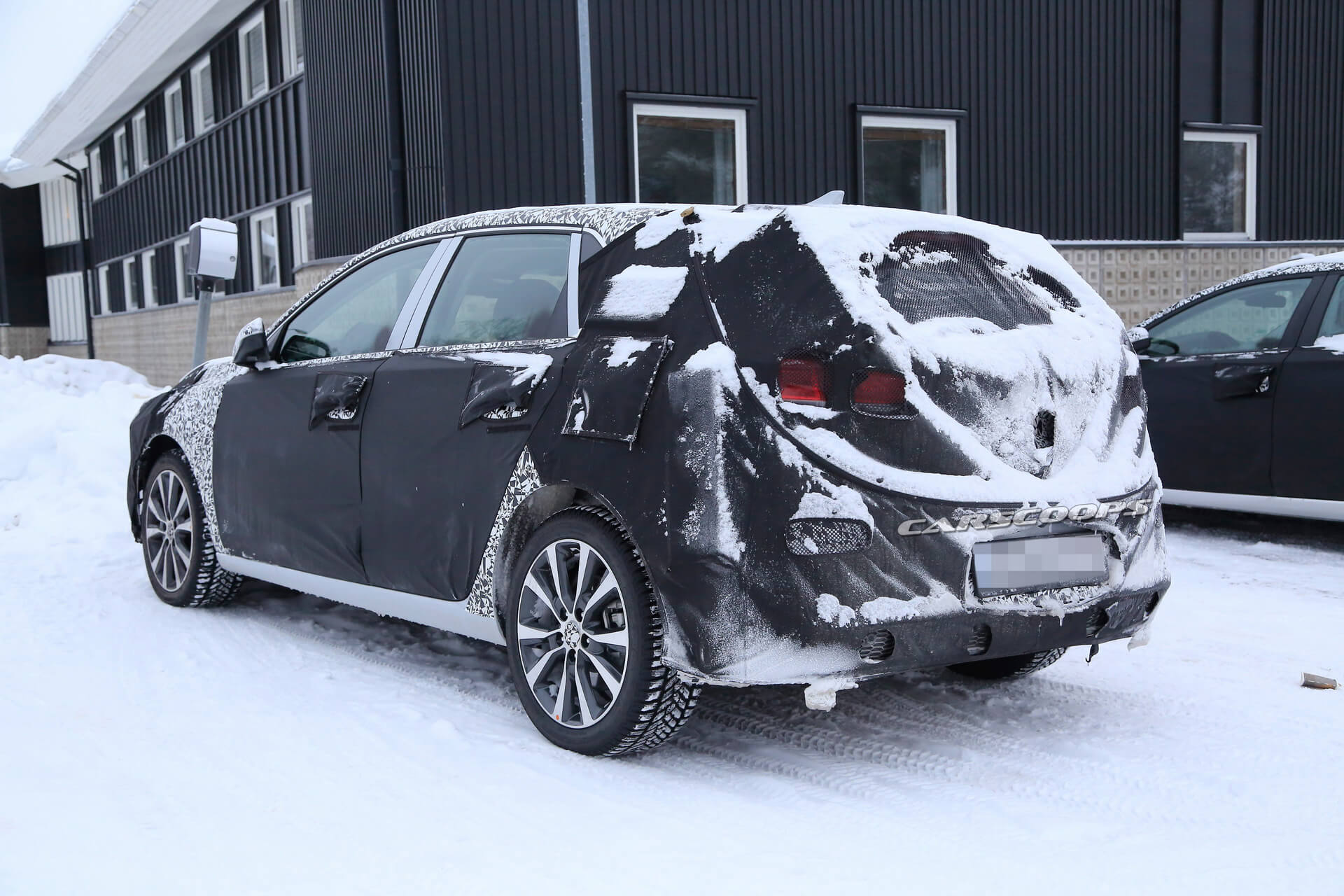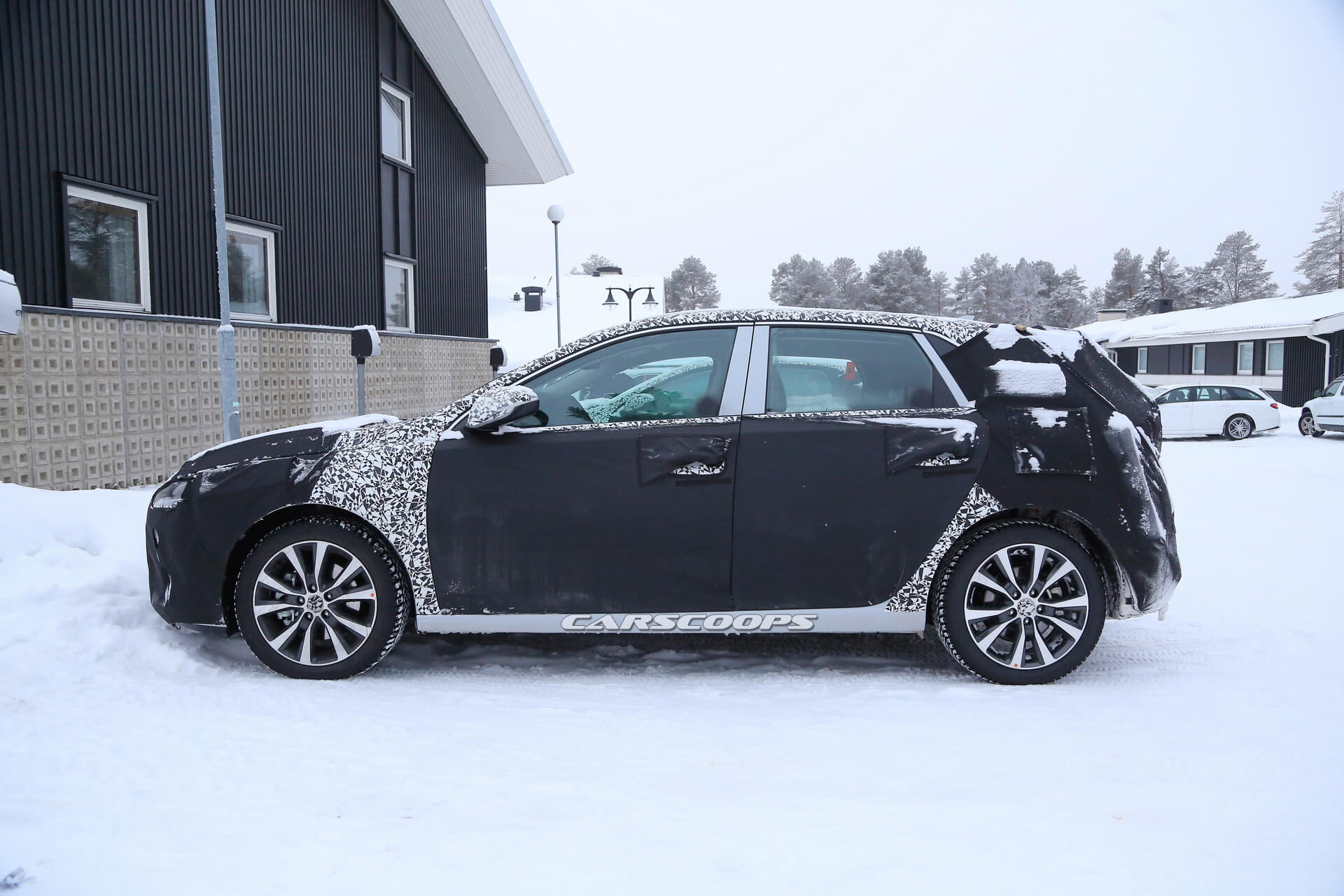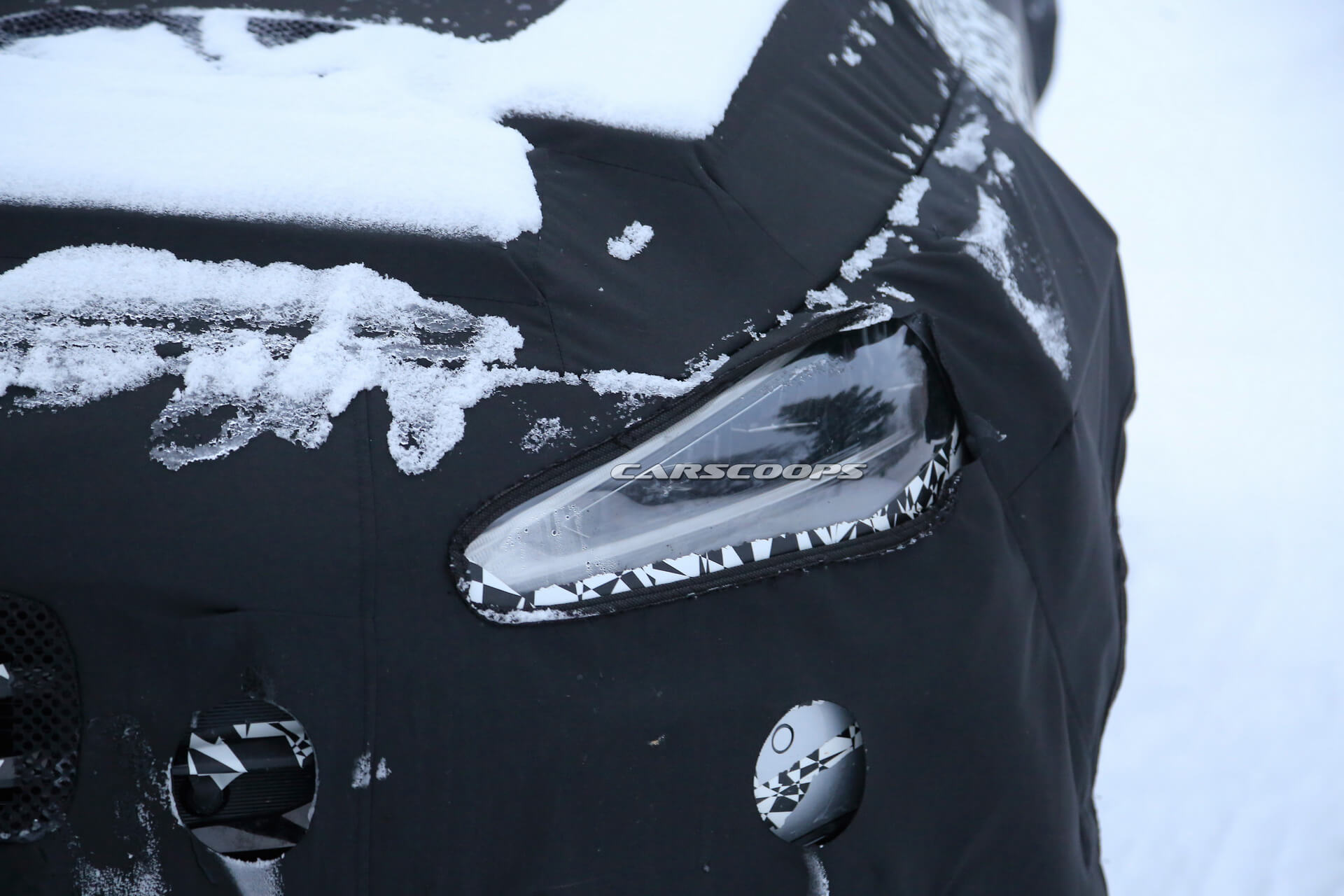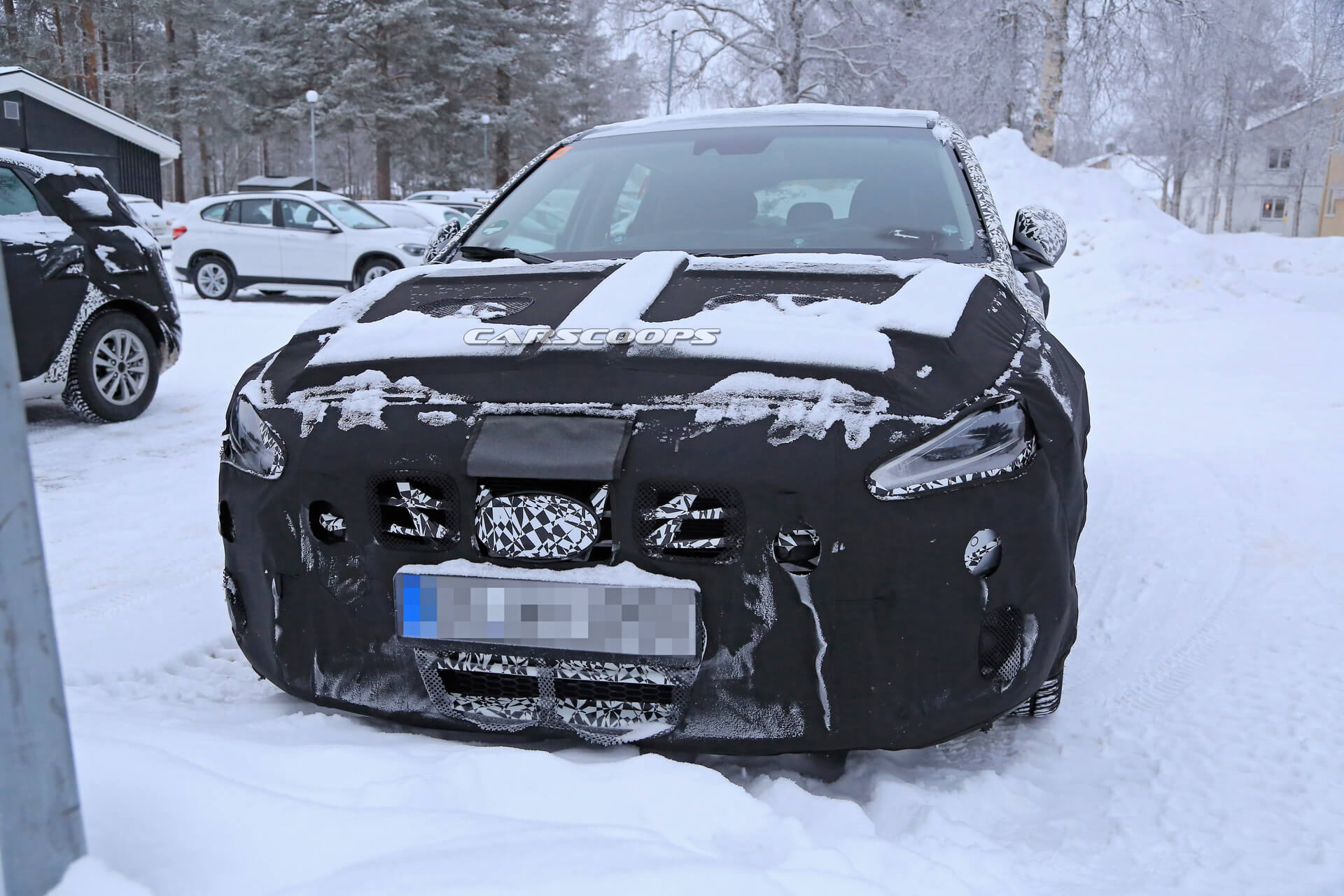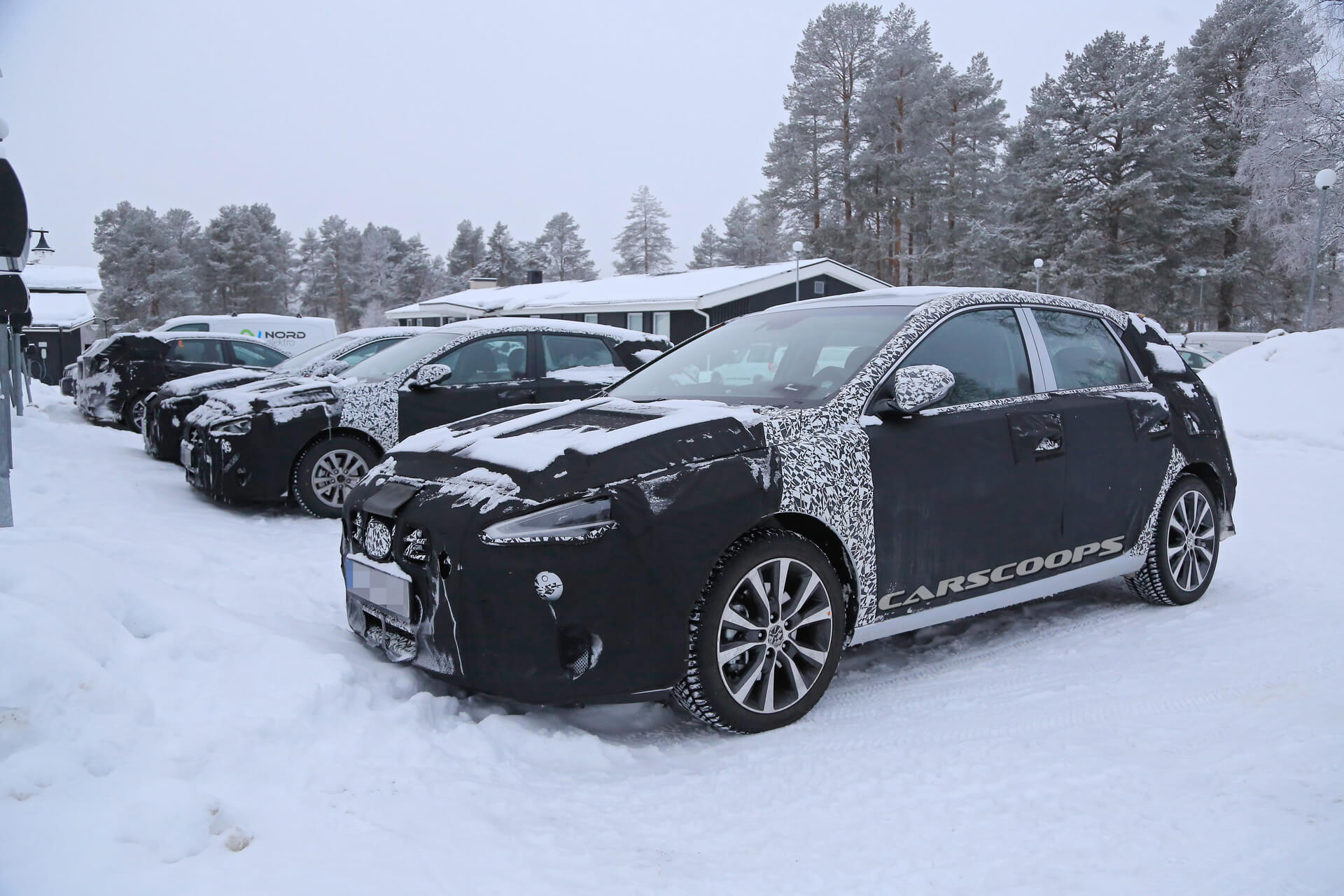The third generation i30 is about to go through its mid-cycle refresh, three years after production started, with Hyundai focusing on the design and adding new technological features.
The prototypes snapped on camera by our spy photographers in the sub-freezing temperatures of Northern Europe continue to hide their changes, with the camouflage being applied to most body panels. Nonetheless, we expect the Korean automaker to revise the bumpers, lighting units – with distinctive LED DRLs, and grille, and perhaps wrap everything up with new colors and wheels.
Driven: It’s True – The 2019 Hyundai i30 N IS A Game Changer
More camo is found on the inside, covering up parts of the dashboard, center console, door panels and steering wheel. However, the overall design seems to have been retained, so the stickers are likely there to make it harder to spot the changes, like the expected new trim options, the new infotainment system with the larger touchscreen display and a new digital instrument cluster.
Every other feature, such as the air vents, air-con controls, multi-function steering wheel, gearshift lever and electronic handbrake, as well as the cubbies, looks the same with the current model.
Things get kind of blurry when it comes to the engine lineup, but the facelifted i30 should retain most powertrains, including the latest 1.6-liter diesel available in three states of tune that range between 95 and 134 horsepower.
The mid-life refresh might bring to Hyundai’s compact hatch new electrified powertrains as well, like the one found in the PHEV variants of the Kia XCeed and Ceed Sportswagon, which combines the 1.6-liter petrol with an electric motor and an 8.9 kWh battery, for a total output of 139 hp and 195 pound-feet (265 Nm) of torque. Should it materialize, then expect it to travel on electric power alone for around 37 miles (60 km).




